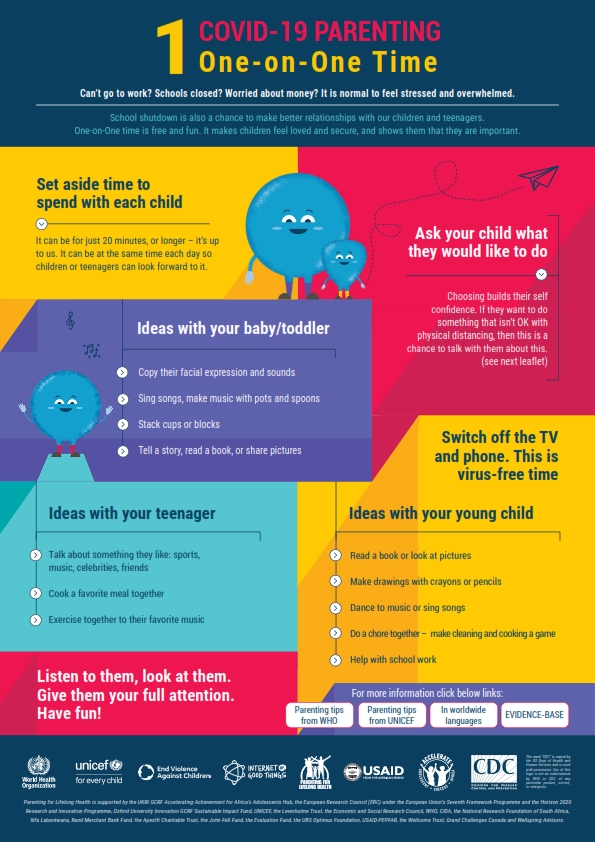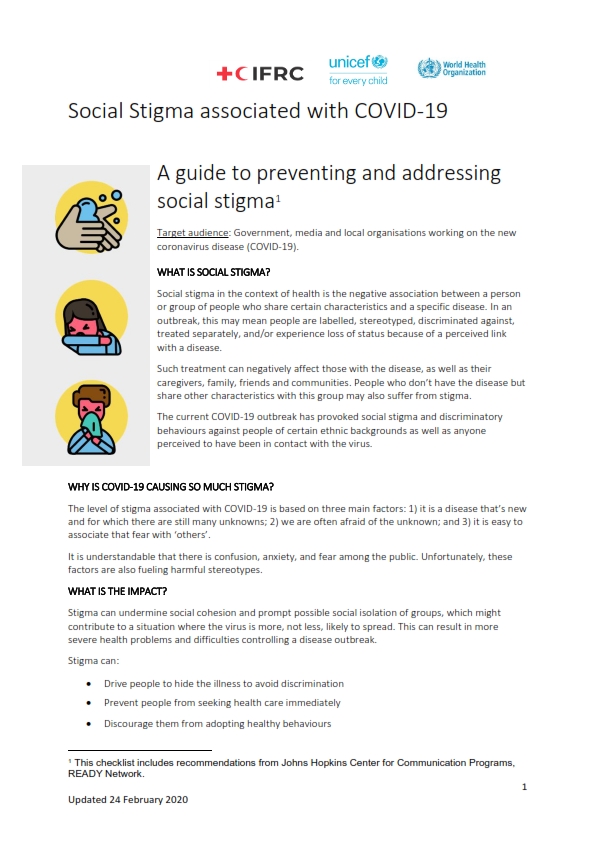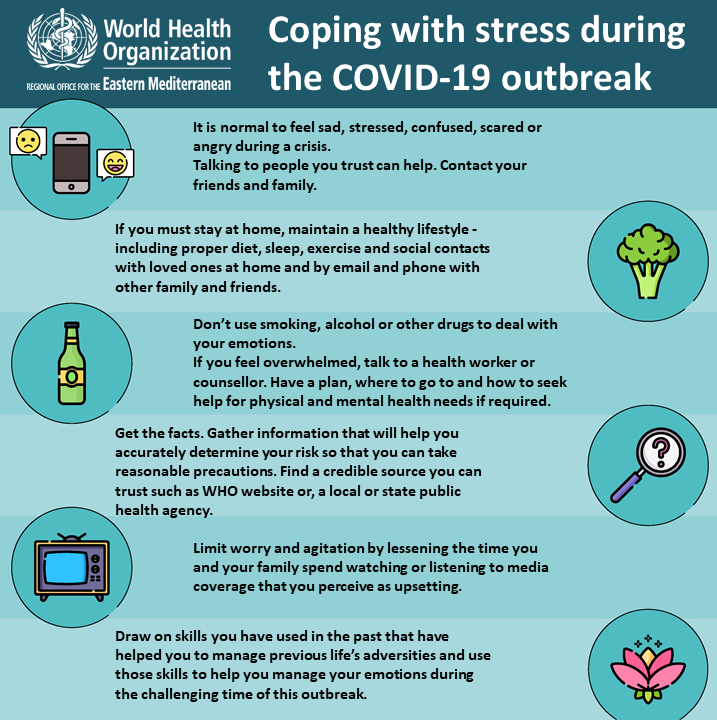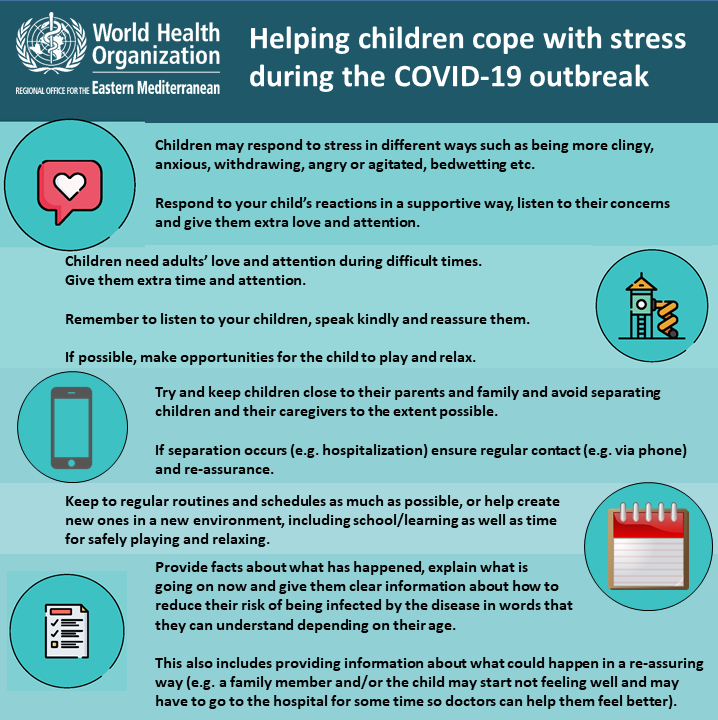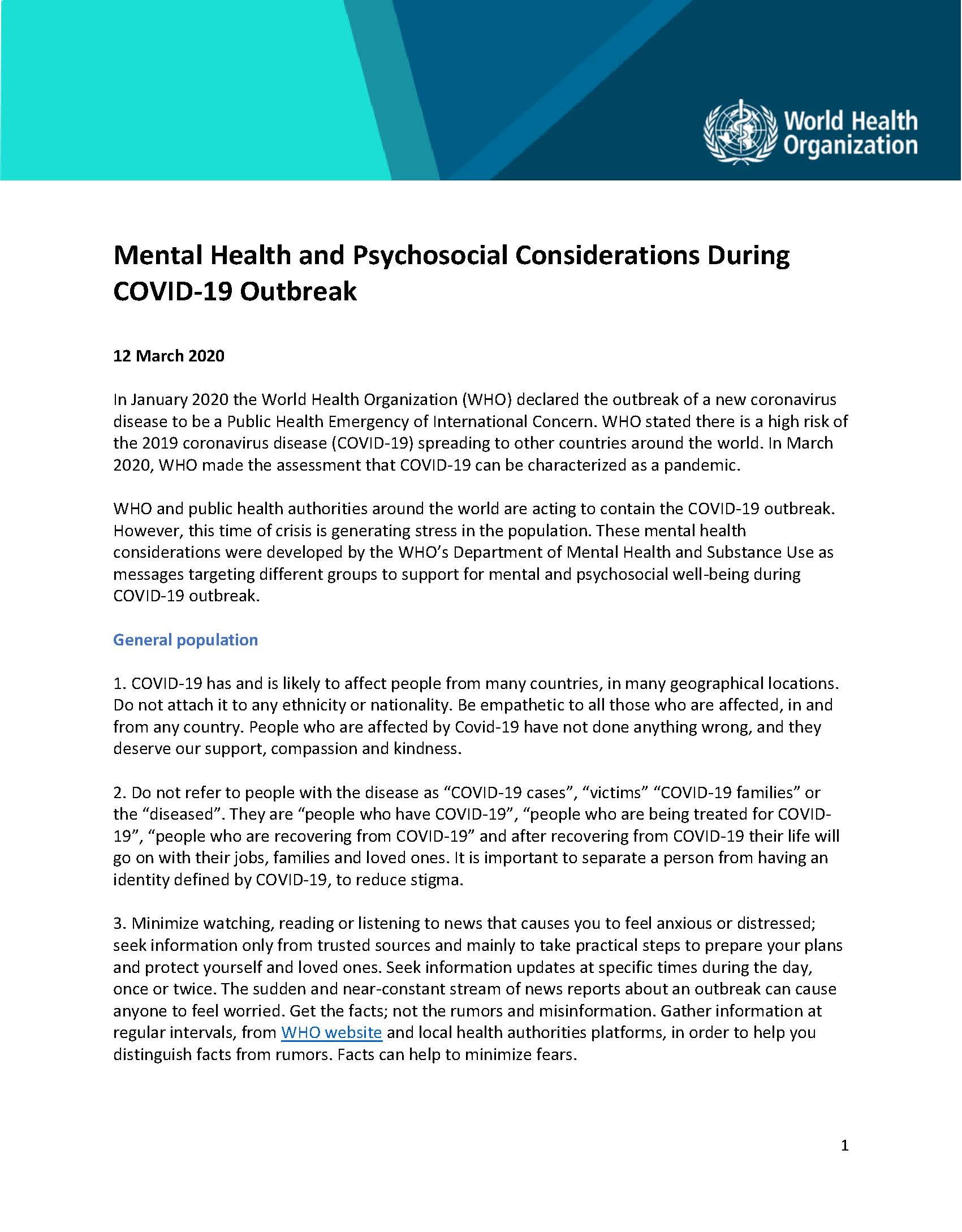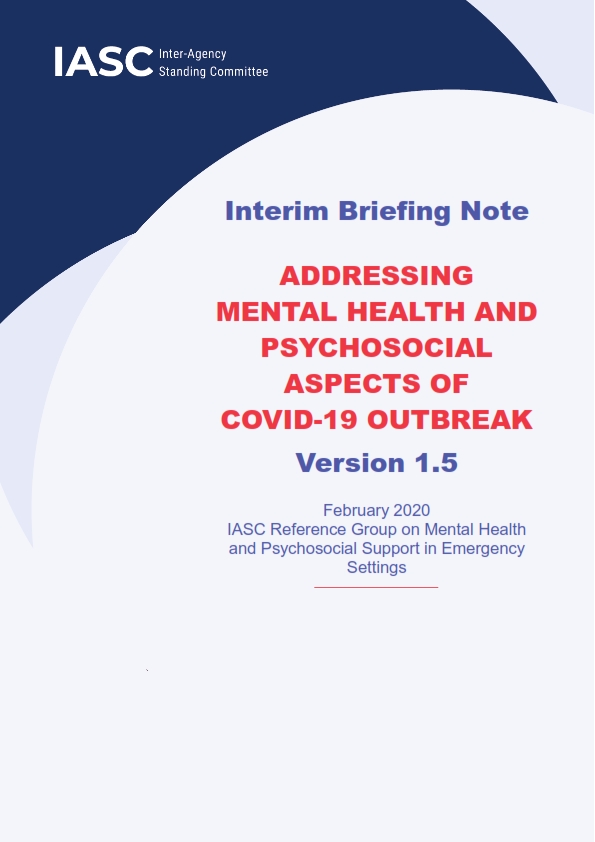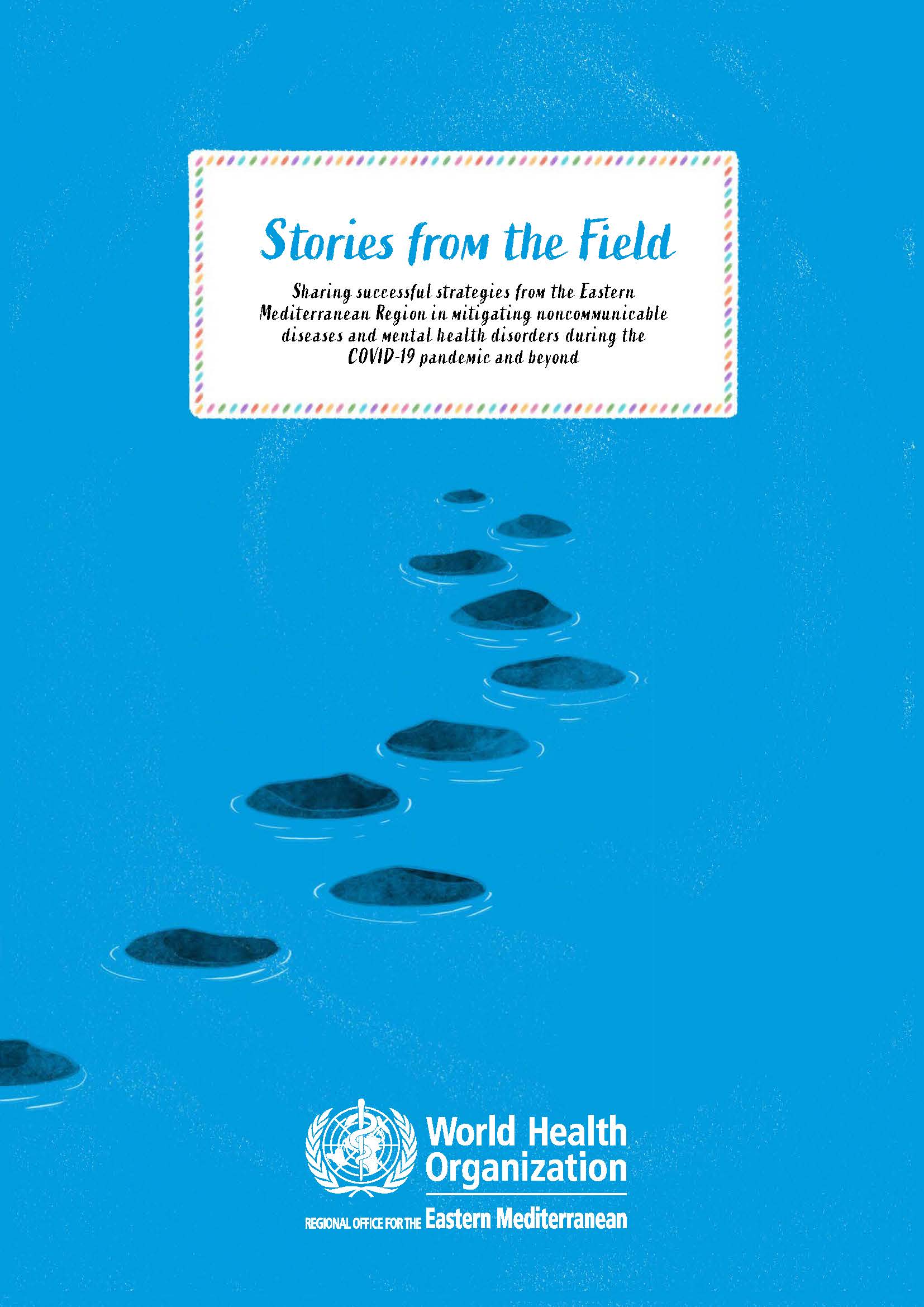
Stories from the field: sharing successful strategies from the Eastern Mediterranean Region in mitigating noncommunicable diseases and mental health disorders during the COVID-19 pandemic and beyond
Publication date: 2023
This publication concentrates on unpublished accounts of what Eastern Mediterranean Region countries have done to address noncommunicable diseases and mental health issues, both before and during the COVID-19 pandemic. The aim is not to give a complete picture of each country’s overall strategy, but to share knowledge and experience with other countries around the world as we confront the global challenges of mental health and NCDs.
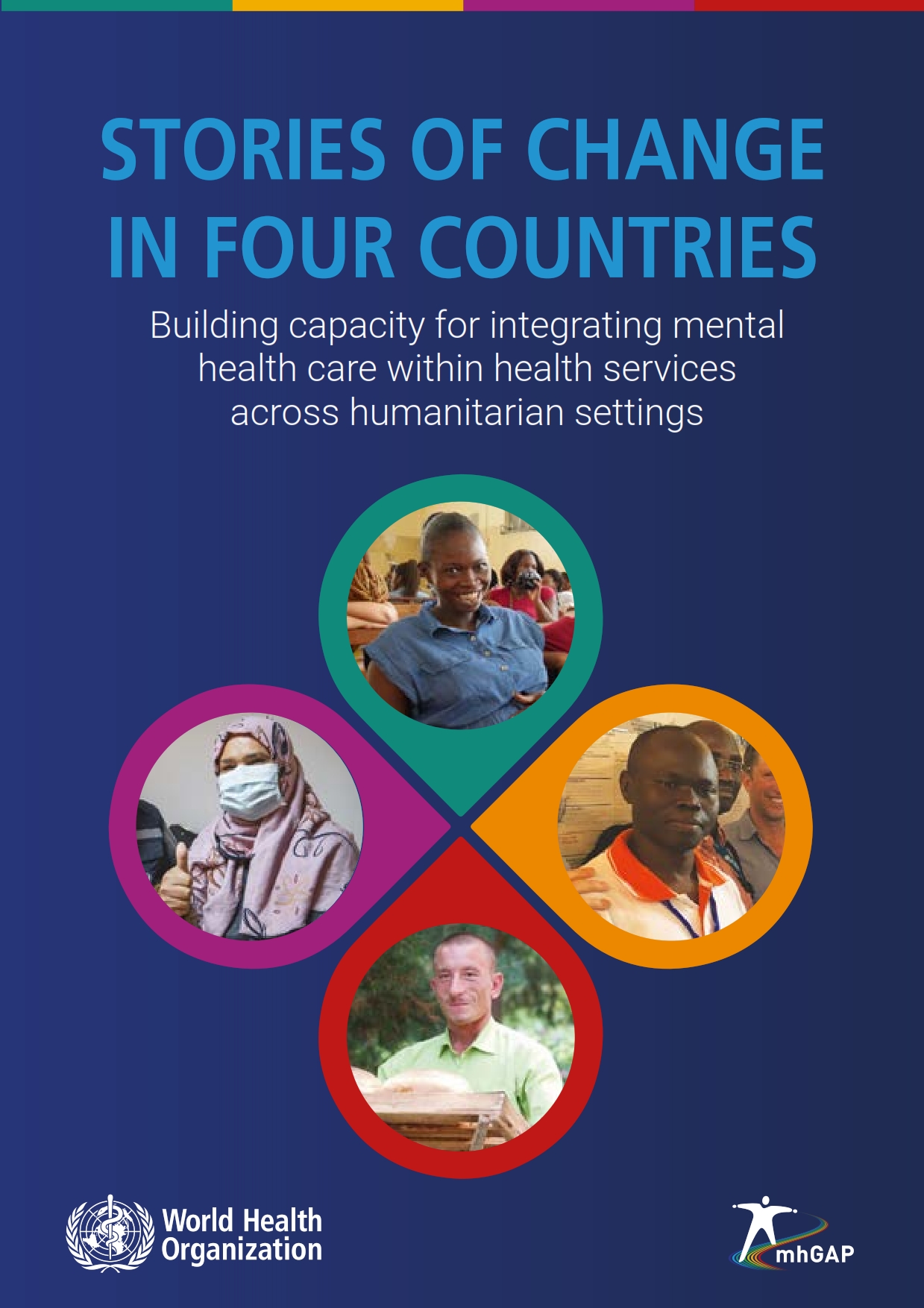
Story of change in Libya: Mobilizing mental health providers to meet the needs of conflict-affected Libya (p. 4–10)
Publication date: 2021
The current report, Stories of change from four countries: Building capacity for integrating mental health care within health services across humanitarian settings, describes efforts in four countries to build evidence-based mental health systems in humanitarian emergency settings using the mhGAP-HIG. This report includes three sections, the first describing the importance of scaling up mental health care in emergency contexts, the second outlining case studies (“stories of change”) to scale up the Mental Health Gap Action Programme (mhGAP) programme in four settings and the third describing lessons learned by stakeholders.
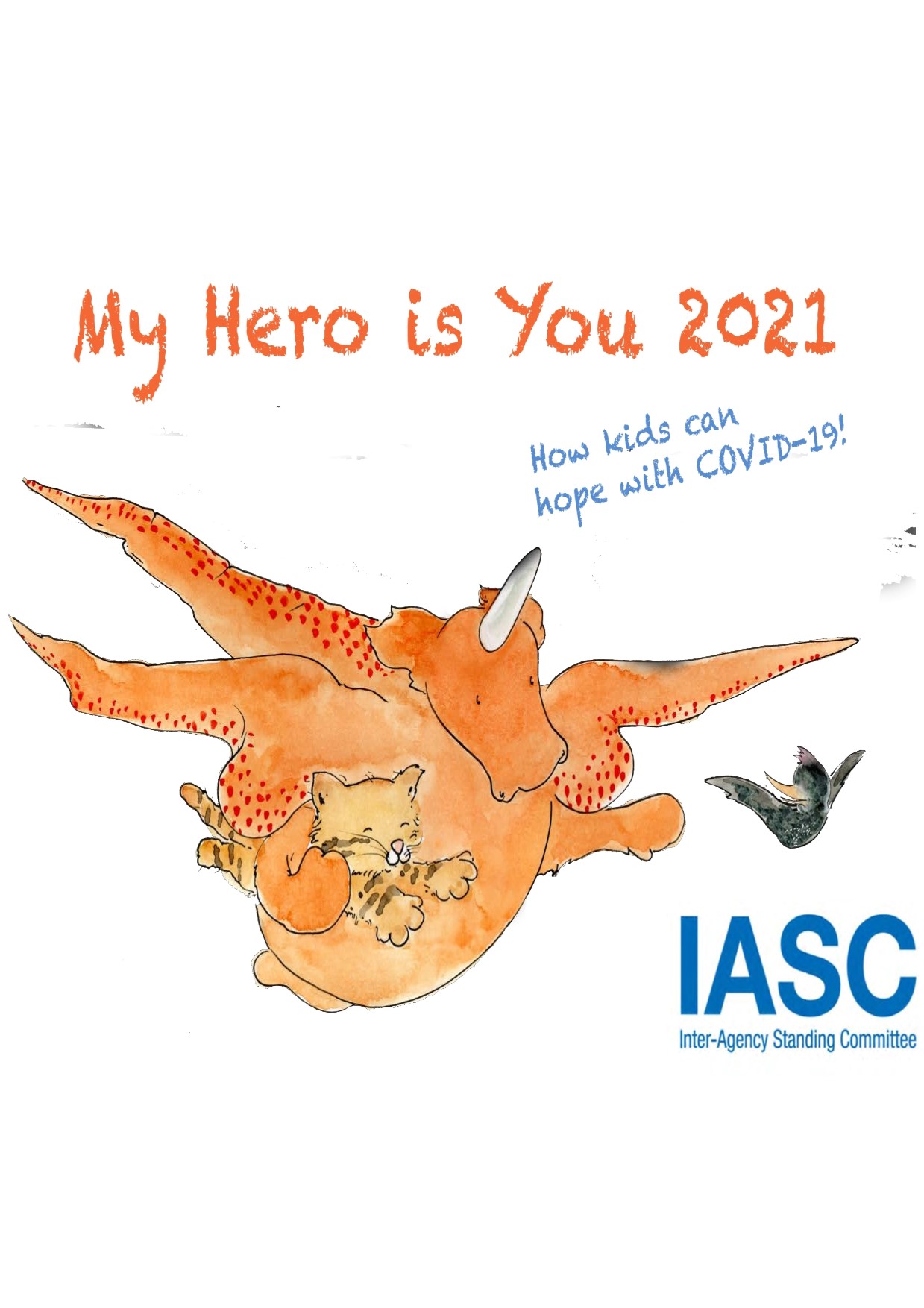
My Hero is You 2021: How kids can hope with COVID-19
Publication date: 2021
The storybook, a sequel to the immensely successful ‘My Hero is You: How kids can fight COVID-19!’, is being released in the second year of the COVID-19 pandemic. The new story, aimed primarily at children aged 6–11 years, sees the return of Ario, a fantasy creature who travels the world helping children find hope in the future and joy in simple pleasures. Together with old and new friends, Ario addresses the fears, frustrations and concerns faced by children during this phase of the pandemic and explores with them the various coping mechanisms that they can use when faced with difficult emotions like fear, grief, anger and sadness. Through the voices of the children that Ario meets on his travels, the book provides a vivid illustration of the impact of COVID-19 on the mental health and well-being of children.
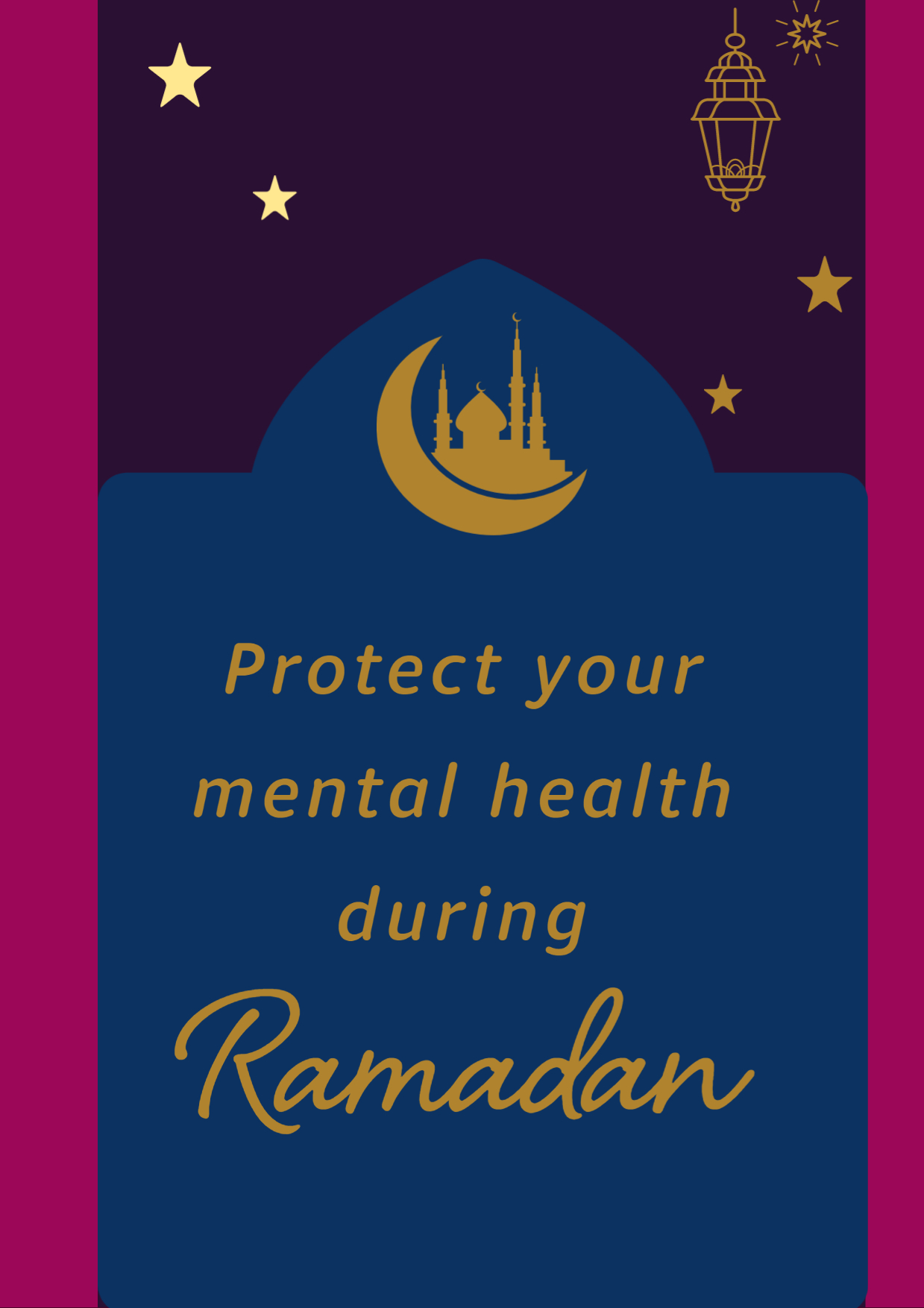
Protect your mental health during Ramadan
Publication date: 2021
Ramadan is back amidst COVID-19 fears and so are we, with a different tip every week, and to remind you that it is normal to feel sad, stressed, confused, scared or angry during those difficult times especially if you are being advised to isolate, stay away from large social, cultural and religious gatherings, and from people you care about to protect yourself and them while vaccination is being rolled out in all countries of the Region. Go to our tips and resources and use them to care for your mental health and wellbeing during this COVID-19 pandemic and throughout the Holy month of Ramadan. Remember that even though you may not be able to meet, socialize, invite friends and family for iftar or suhoor this Ramadan still, you can practice self-restraint, reflect, pray, meditate, share and sacrifice, and seek God’s blessings – which is what this month is truly about.
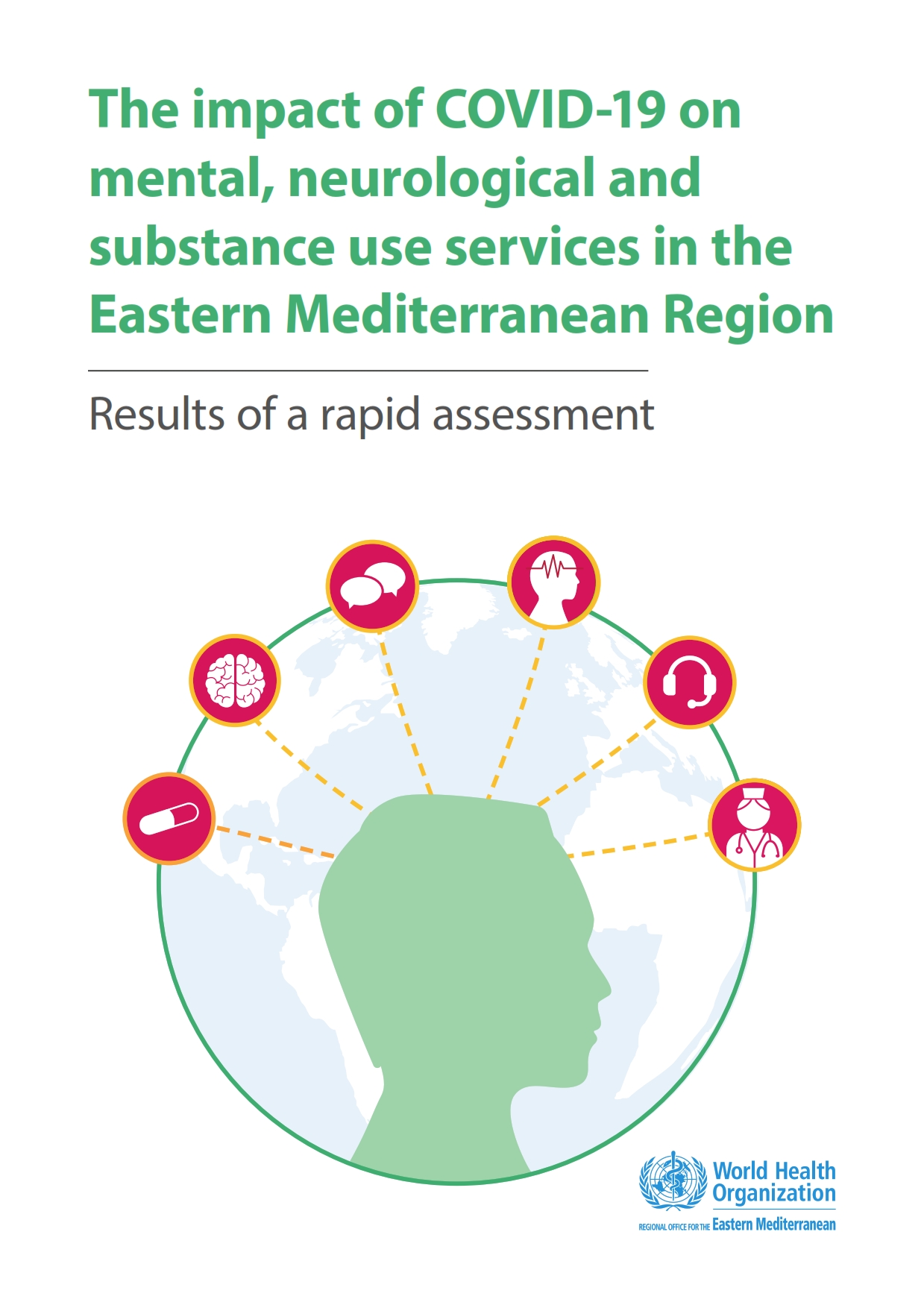
The impact of COVID-19 on mental, neurological and substance use services in the Eastern Mediterranean Region: Results of a rapid assessment
Publication date: 2021
This survey is the first attempt to measure the impact of the pandemic on mental, neurological and substance use services at global and regional levels. The survey covered the existence and funding of mental health and psychosocial support plans, the presence and composition of mental health and psychosocial support service coordination platforms, the degree of continuation and causes of disruption of different mental, neurological and substance use services, the approaches used to overcome these disruptions and surveillance mechanisms and research on mental, neurological and substance use data. This information will inform planning and response to mitigate the effects of the pandemic on populations and communities.
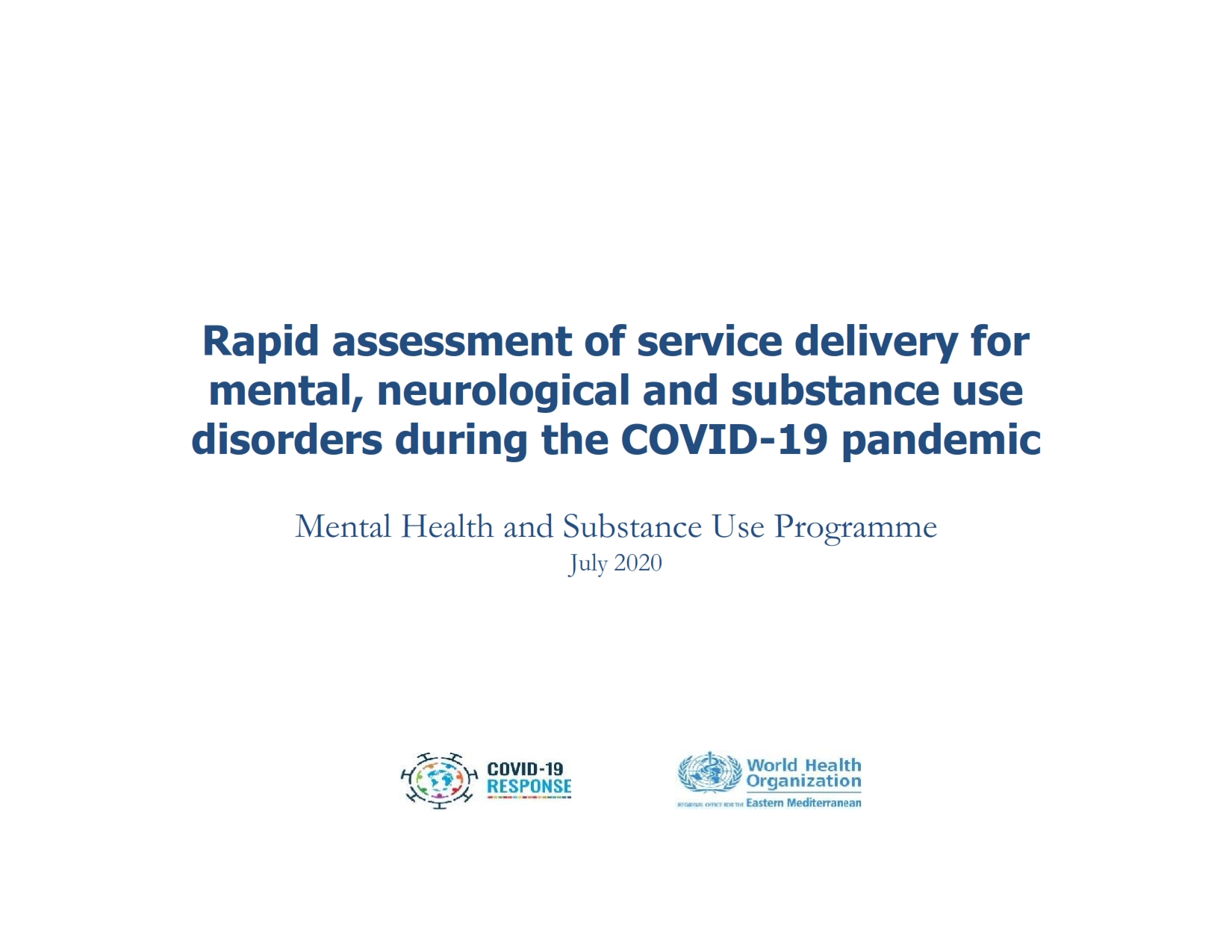
Rapid assessment of service delivery for mental, neurological and substance use disorders during the COVID-19 pandemic (PPT)
Publication date: 2020
This PowerPoint presentation highlights the results of a recent WHO survey on service delivery of mental, neurological and substance use disorders during the COVID-19 pandemic. It stresses the importance of: incorporation mental health and psychosocial support services in national COVID-19 response plans; more funding for provision of mental health and psychosocial support services (face-to-face and remote e.g. helplines, digital platforms, telemedicine, teletherapy) to ensure continuity of care during the COVID-19 pandemic and beyond; and improving national monitoring and surveillance systems to collect data and make the case for scaling up investment in mental health.

Mental health and psychosocial support platform
Publication date: 2020
The COVID-19 outbreak is a global emergency. This platform offers basic psychological support to help you better manage the psychosocial difficulties you might be experiencing. The platform is divided into four sections: (1) a 5-minute questionnaire that asks about your current psychological well-being; (2) general information about stress and how it affects us and exercises for you to deal with stress; (3) general information about problems caused by substance use and how it affects us and ways to deal with these problems; and (4) contact information for mental health professionals in your country who you may wish to talk to.
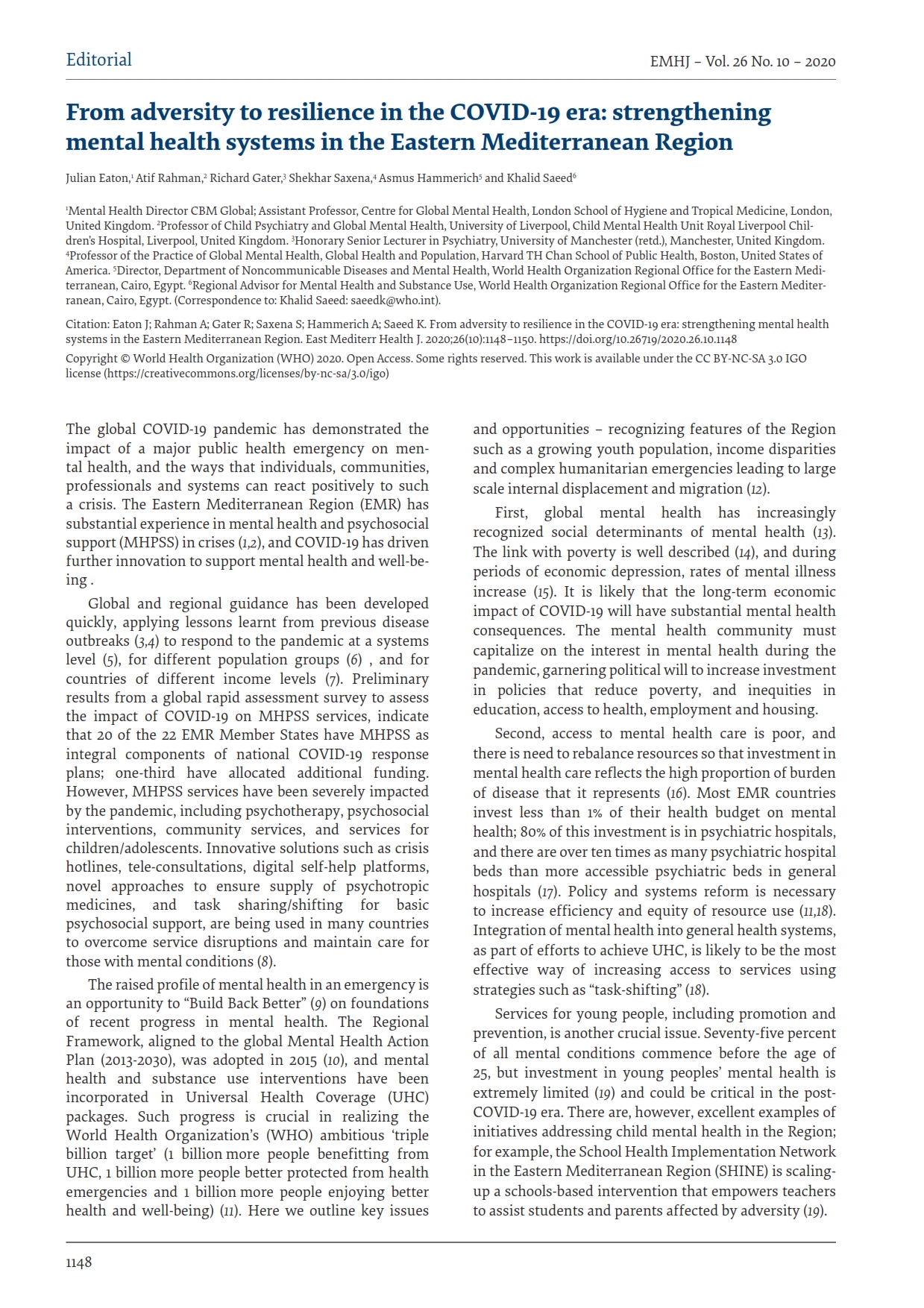
From adversity to resilience in the COVID-19 era: strengthening mental health systems in the Eastern Mediterranean Region
Publication date: 2020
Mental health and psychosocial support services have been severely impacted by the COVID-19 pandemic. Innovative solutions such as crisis hotlines, tele-consultations, digital self-help platforms, novel approaches to ensure supply of psychotropic medicines, and task sharing/shifting for basic psychosocial support, are being used in many countries to overcome service disruptions and maintain care for those with mental conditions. In this editorial, the authors outline key issues and opportunities – recognizing features of the Region such as a growing youth population, income disparities and complex humanitarian emergencies leading to large scale internal displacement and migration.
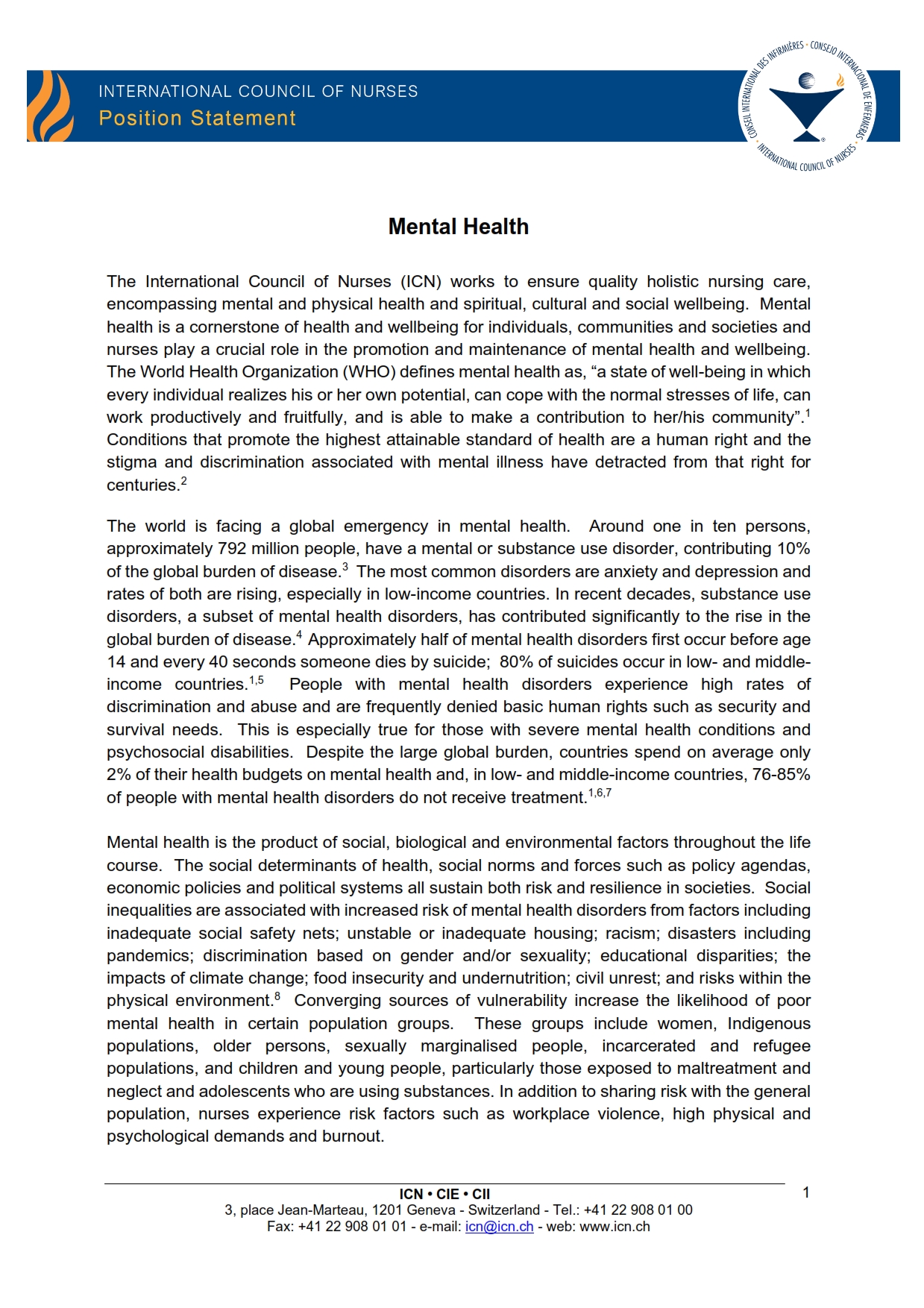
International Council of Nurses position statement: mental health
Publication date: 2020
The International Council of Nurses (ICN) is concerned about the lack of recognition of the health workforce role in the care, advocacy and leadership in dealing with mental health and noncommunicable diseases. ICN is also concerned about the absence of consumers and the community in the development of policies, strategies or legislation related to mental health and noncommunicable diseases. People-centered care and community engagement need to be front and center in any future implementation plans.
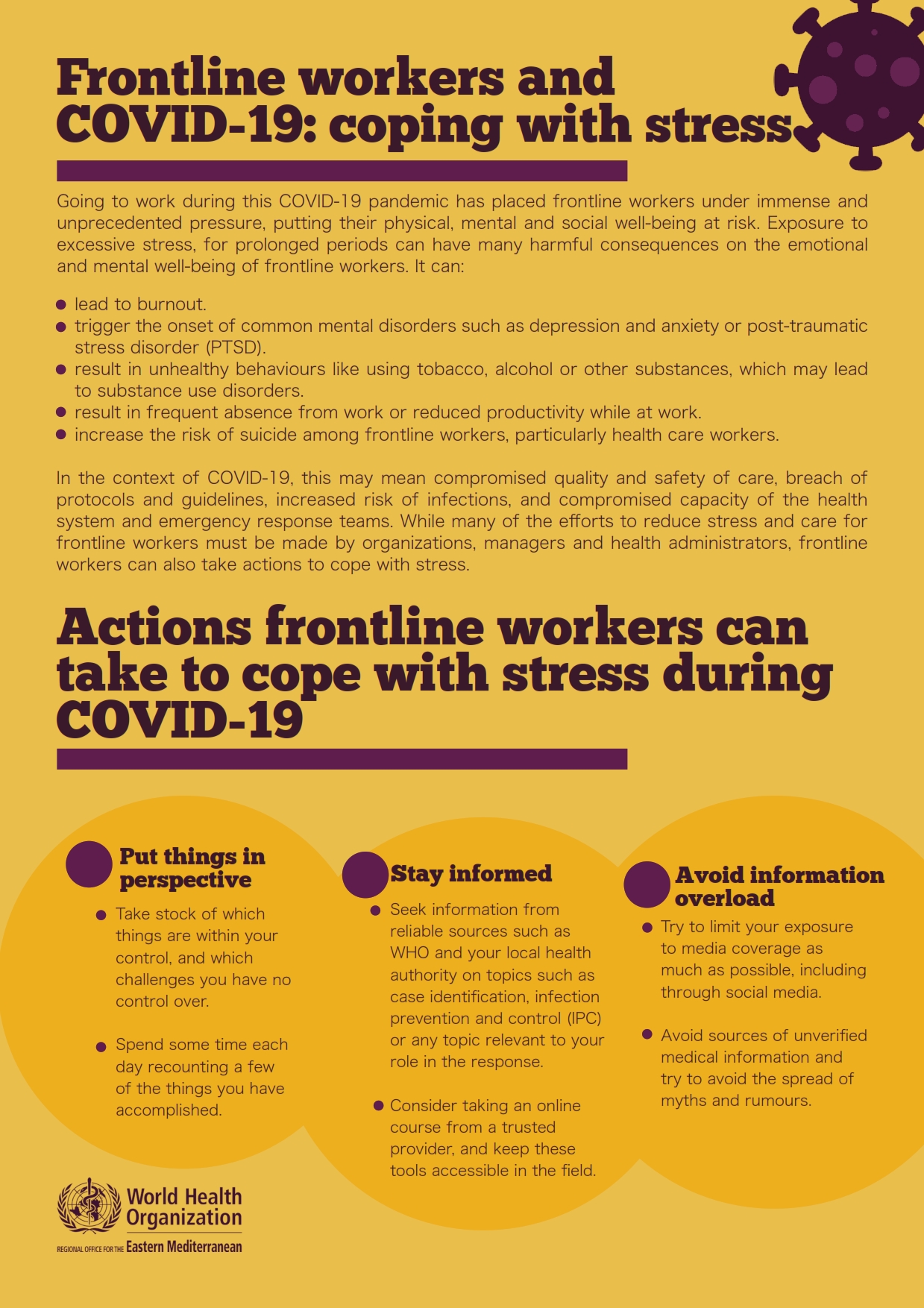
Frontline workers and COVID-19: coping with stress
Publication date: 2020
Going to work during this COVID-19 pandemic has placed frontline workers under immense and unprecedented pressure, putting their physical, mental and social well-being at risk. Exposure to excessive stress, for prolonged periods can have many harmful consequences on the emotional and mental well-being of frontline workers. This document outlines some actions that frontline workers can take to cope with stress and take care of themselves during COVID-19.
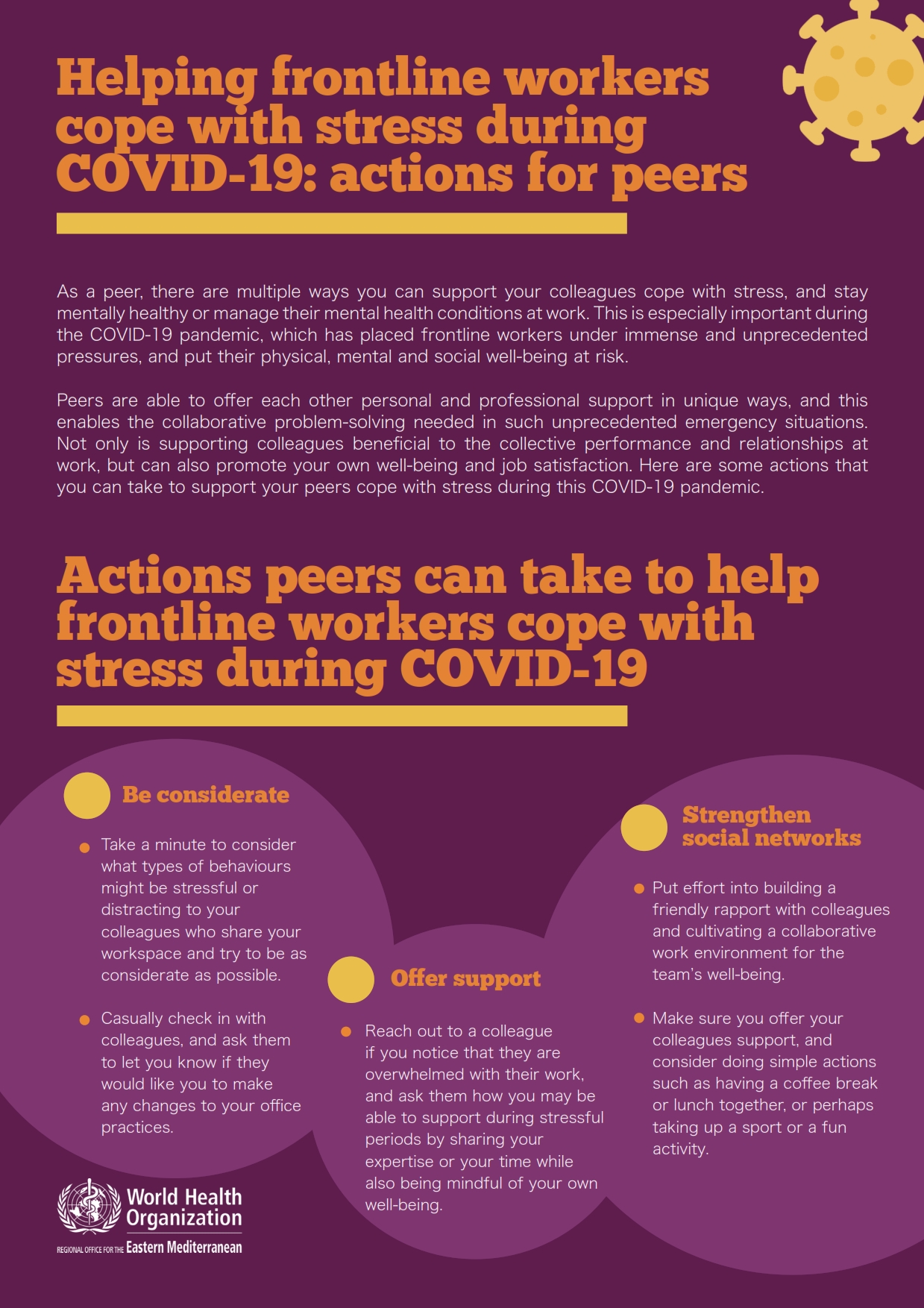
Helping frontline workers cope with stress during COVID-19: actions for peers
Publication date: 2020
As a peer, there are multiple ways you can support your colleagues cope with stress, and stay mentally healthy or manage their mental health conditions at work. This is especially important during the COVID-19 pandemic. Not only is supporting colleagues beneficial to the collective performance and relationships at work, but can also promote your own well-being and job satisfaction. This document outlines some actions that peers can take to support their peers cope with stress during this COVID-19 pandemic.
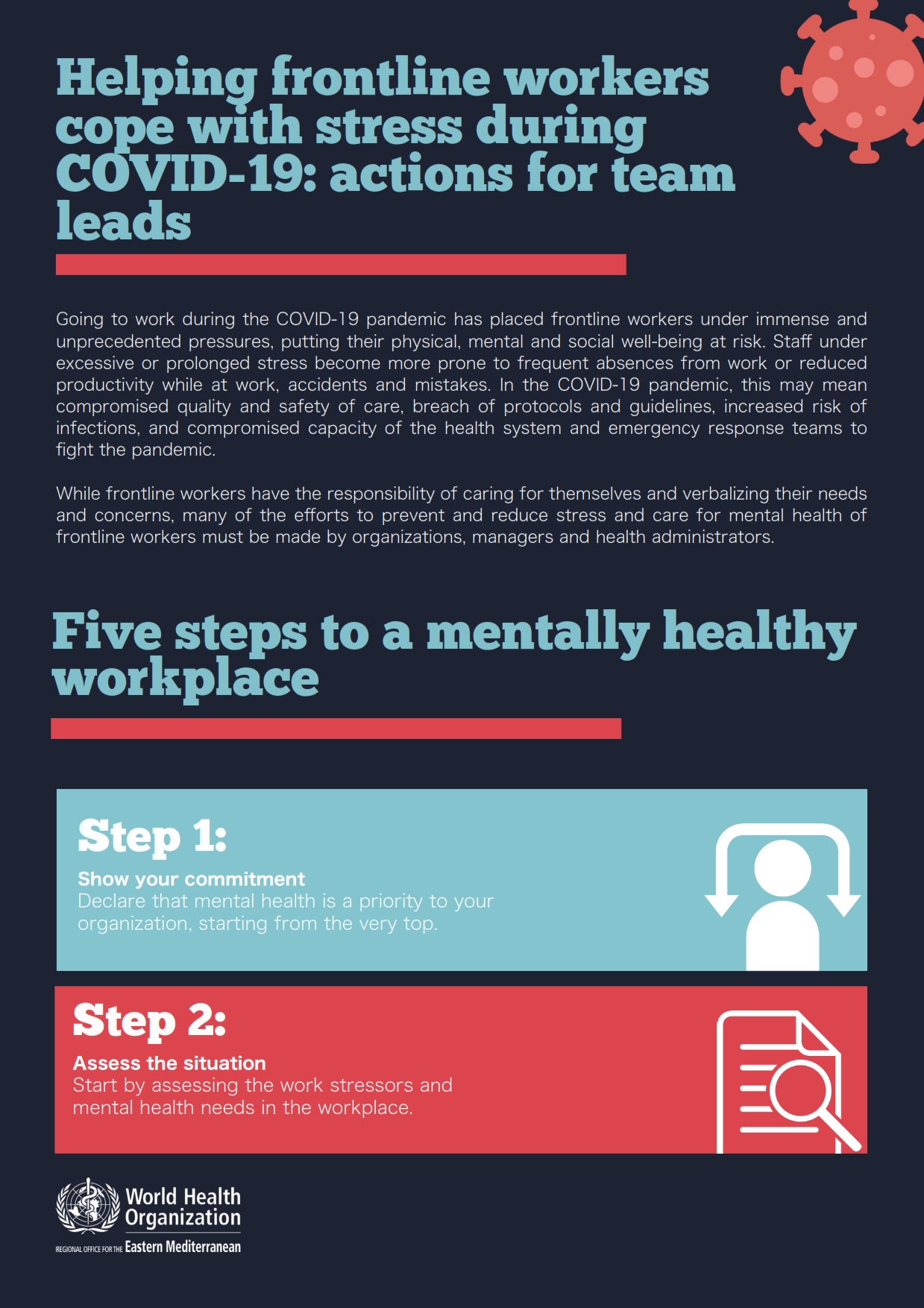
Helping frontline workers cope with stress during COVID-19: actions for team leads
Publication date: 2020
Going to work during the COVID-19 pandemic has placed frontline workers under immense and unprecedented pressures. While frontline workers have the responsibility of caring for themselves and verbalizing their needs and concerns, many of the efforts to prevent and reduce stress and care for mental health of frontline workers must be made by organizations, managers and health administrators. This document outlines some actions that team leads can take to support frontline workers cope with stress during this COVID-19 pandemic.
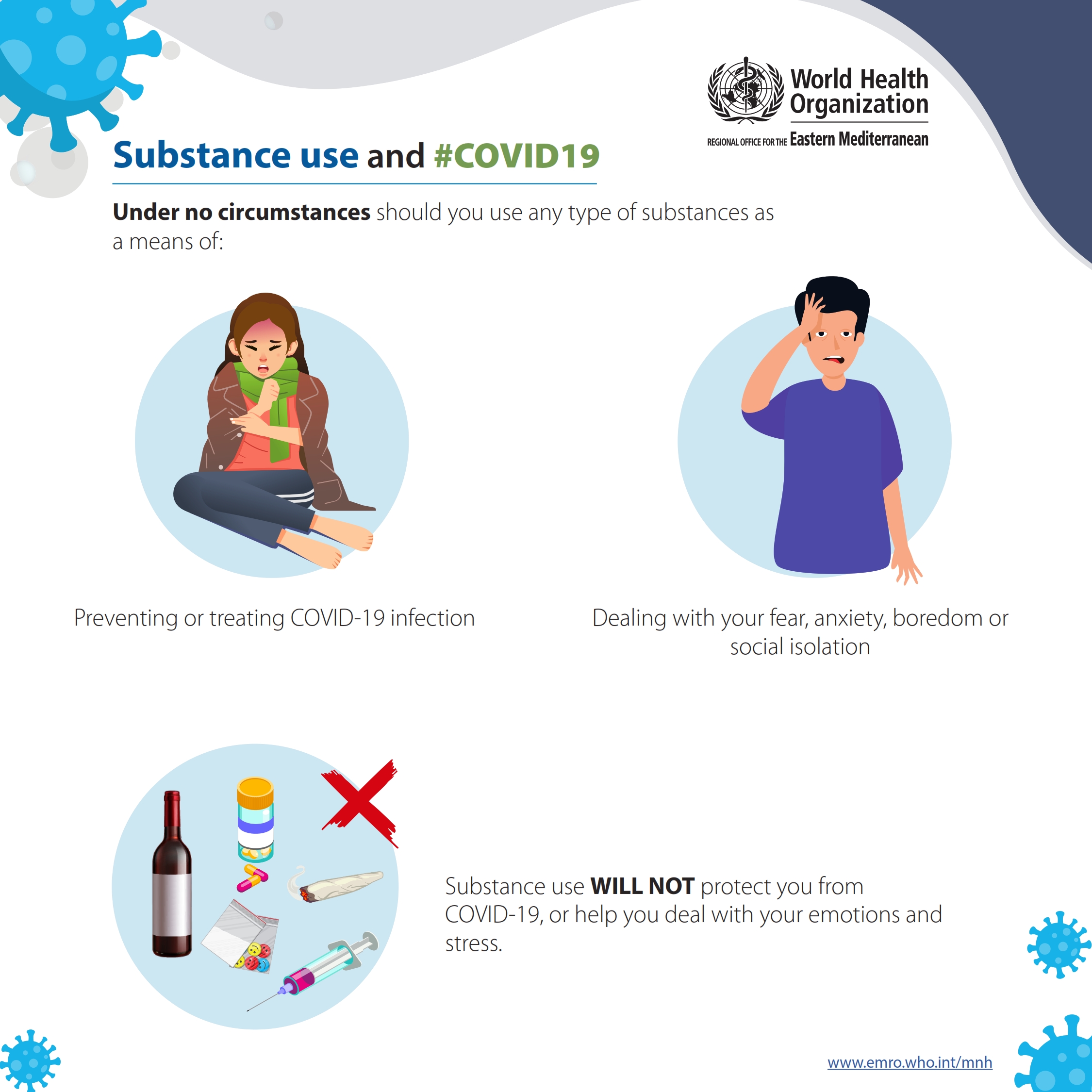
Substance use and #COVID19 (social cards)
Publication date: 2020
Under no circumstances should you use any type of substances as a means of preventing or treating COVID-19 infection, or dealing with your fear, anxiety, boredom or social isolation. Substance use WILL NOT protect you from COVID-19, or help you deal with your emotions and stress. These five social cards provide important information on what you need to know in regard to substance use during the COVID-19 pandemic. They also stress the importance of avoiding substance use, protecting your immune system and health, and reaching out for help.
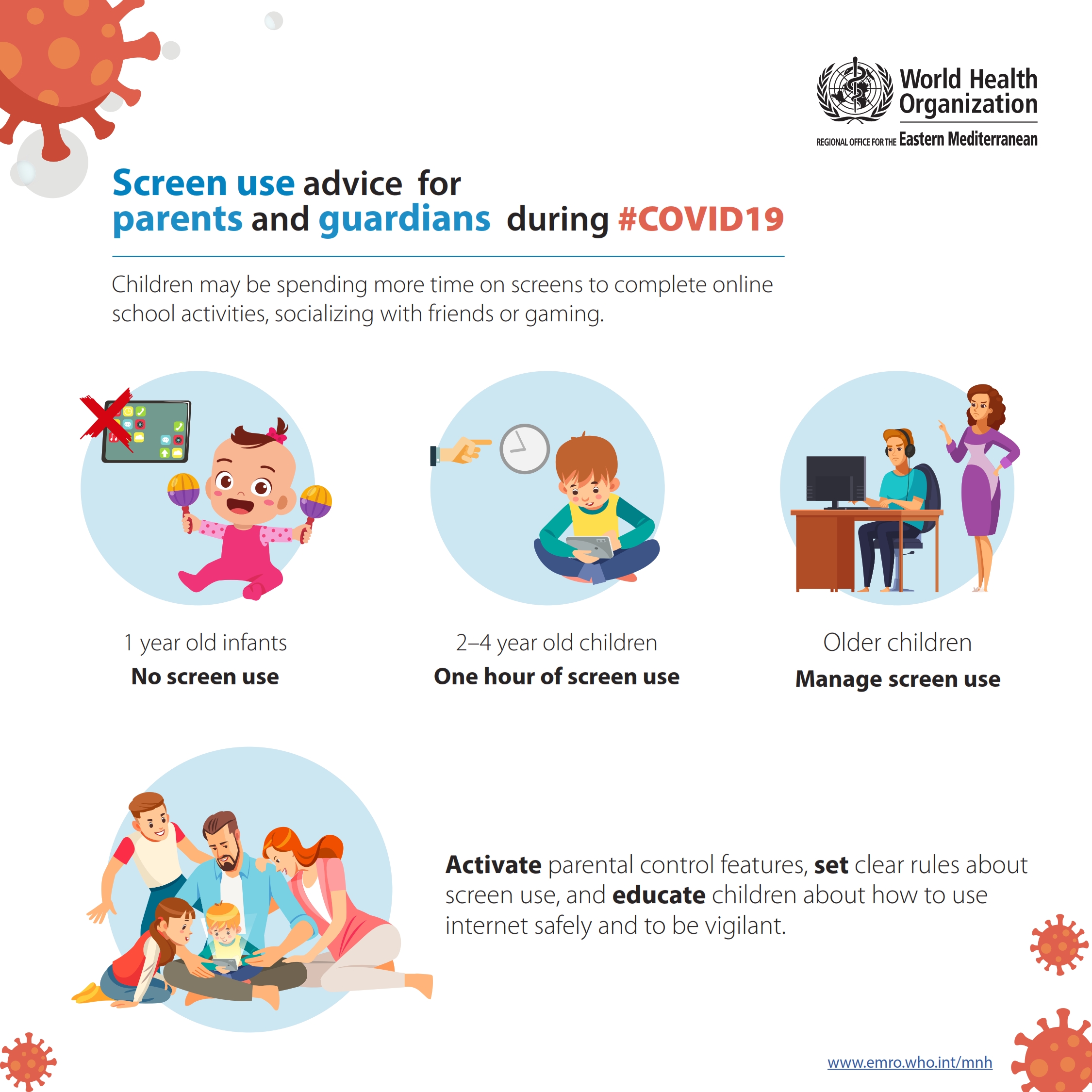
Screen use advice during #COVID19 (social cards)
Publication date: 2020
COVID-19 has posed significant challenges for everyone. Young people can be particularly vulnerable to the harms associated with screen use and gaming including unhealthy sedentary lifestyles, exposure to harmful content, misinformation about COVID-19, cyberbullying, development of gaming disorder, or engagement in online gambling. These 10 social cards provide important advice for different target groups to ensure online safety for young people during the COVID-19 pandemic. These target groups include: parents and guardians, school authorities, health and social care providers, digital technology and gaming companies, and policy-makers.
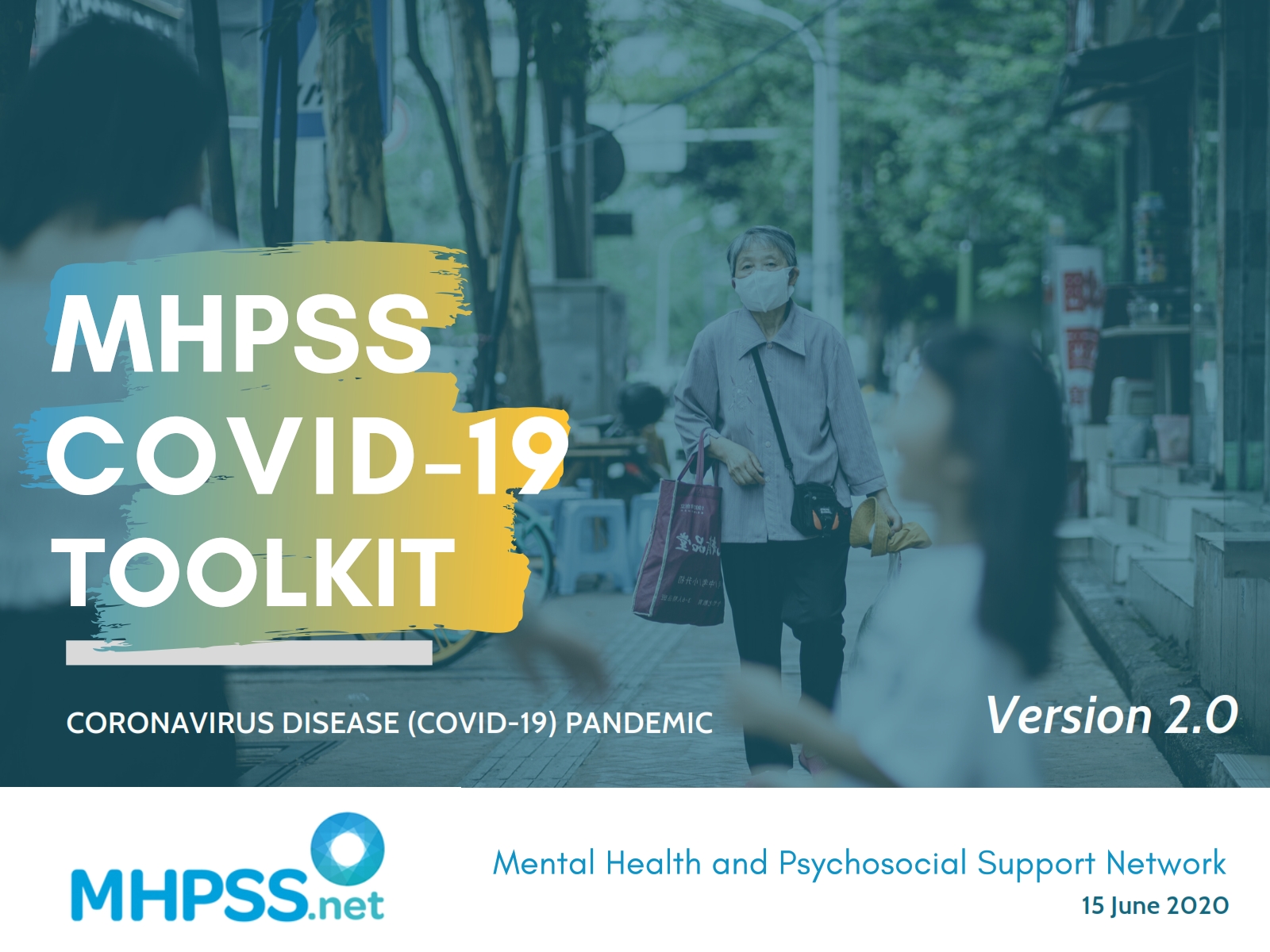
MHPSS COVID-19 toolkit version 2.0
Publication date: 2020
The COVID-19 pandemic is a rapidly evolving global crisis and there is much that is still emerging in terms of the psychosocial and mental health consequences for the diverse populations affected by this emergency. This toolkit provides current and accurate information on what resources are available on the mental health and psychosocial support services response to the ongoing COVID-19 pandemic, and will be updated as additional resources become available.
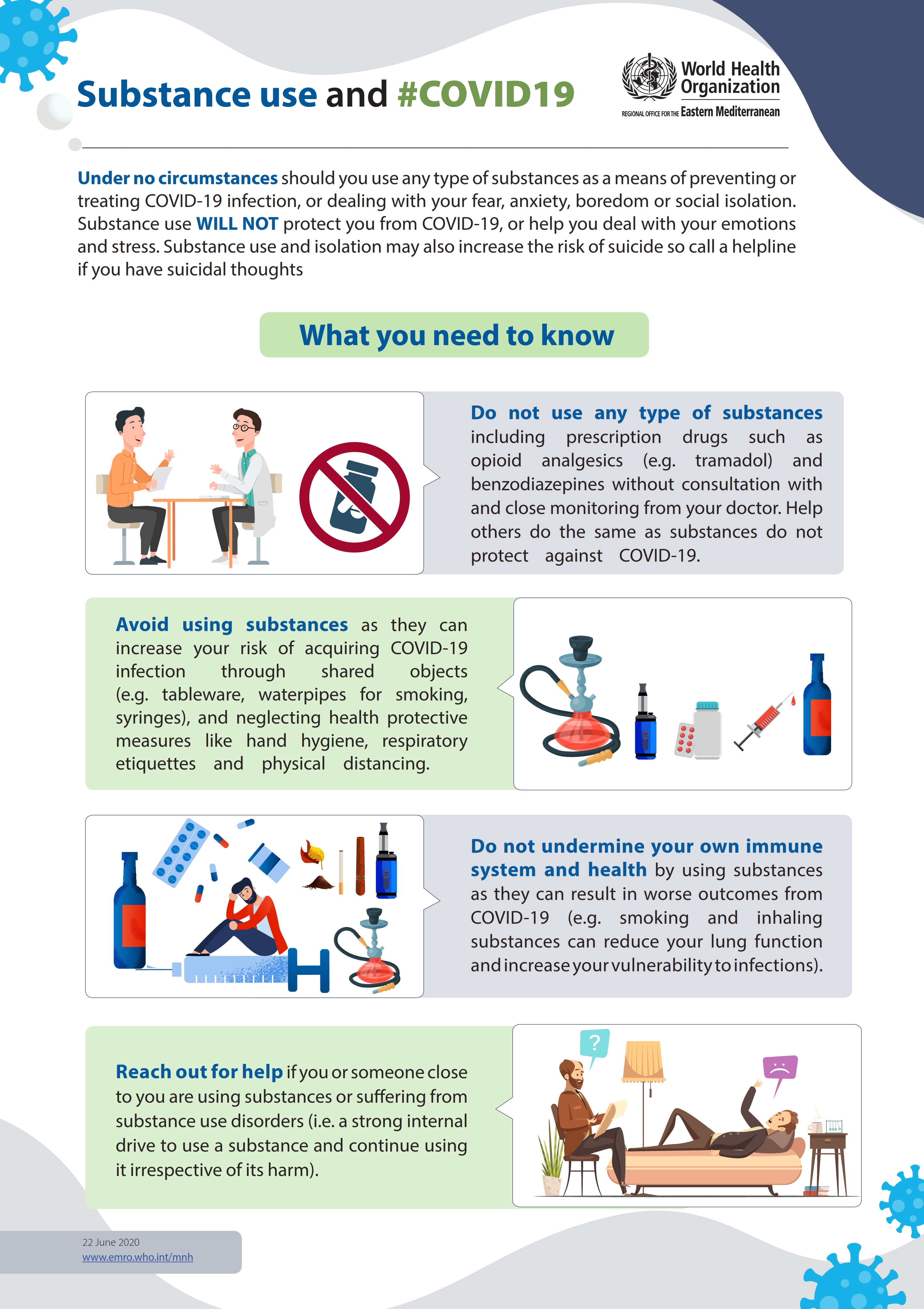
Substance use during #COVID19: what you need to know (infographic)
Publication date: 2020
Under no circumstances should you use any type of substances as a means of preventing or treating COVID-19 infection, or dealing with your fear, anxiety, boredom or social isolation. Substance use WILL NOT protect you from COVID-19, or help you deal with your emotions and stress. This infographic provides important information on what you need to know in regard to substance use during the COVID-19 pandemic. It also stresses the importance of avoiding substance use, protecting your immune system and health, and reaching out for help.
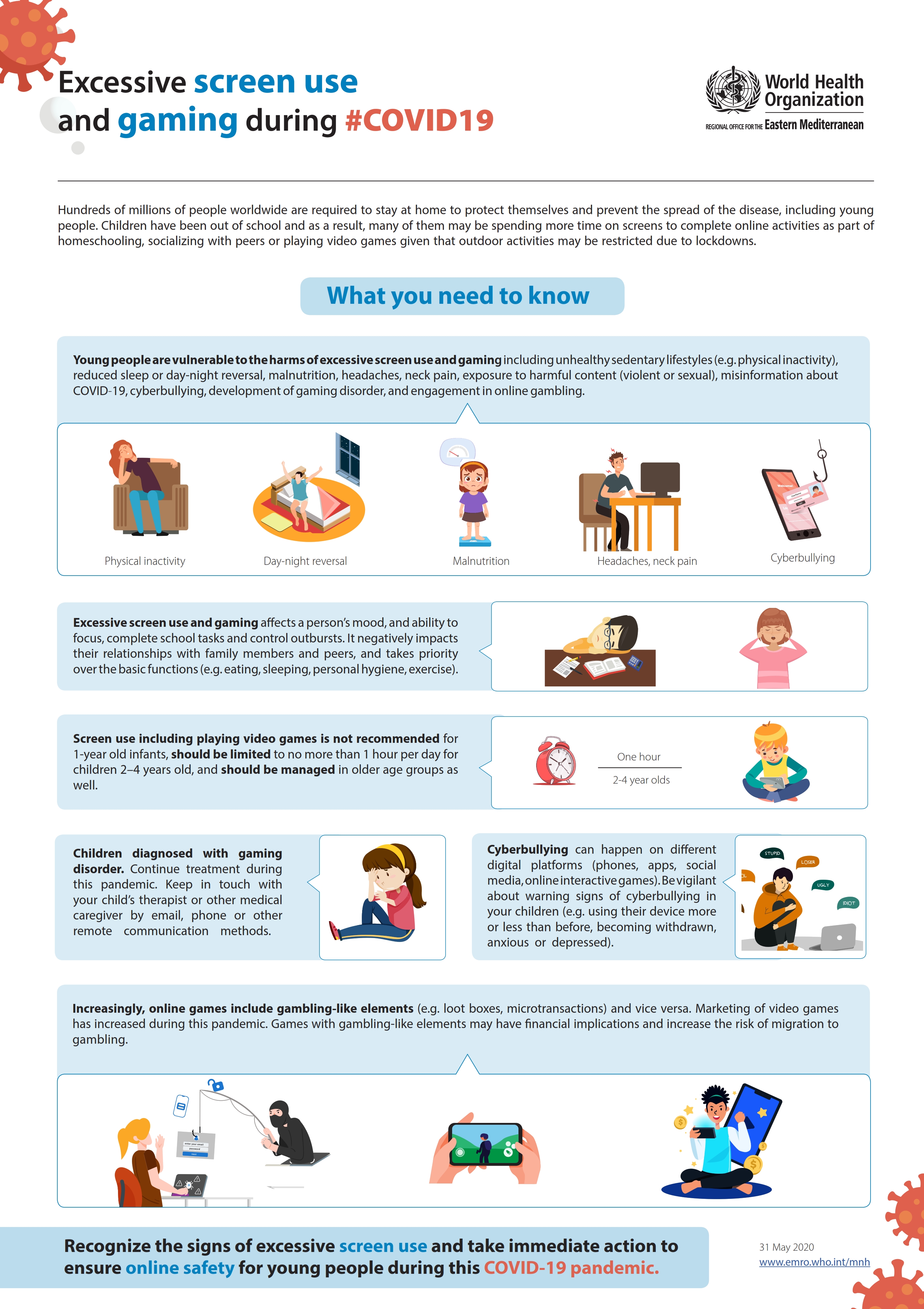
Excessive screen use and gaming during #COVID19: what you need to know (infographic)
Publication date: 2020
Hundreds of millions of people worldwide are required to stay at home to protect themselves and prevent the spread of the disease, including young people. Children have been out of school and as a result, many of them may be spending more time on screens to complete online activities as part of homeschooling, socializing with peers or playing video games given that outdoor activities may be restricted due to lockdowns. This infographic provides important information on what you need to know in regard to excessive screen use and gaming during the COVID-19 pandemic. It also stresses the importance of recognizing the signs of excessive screen use and taking action to ensure online safety for young people during this pandemic.
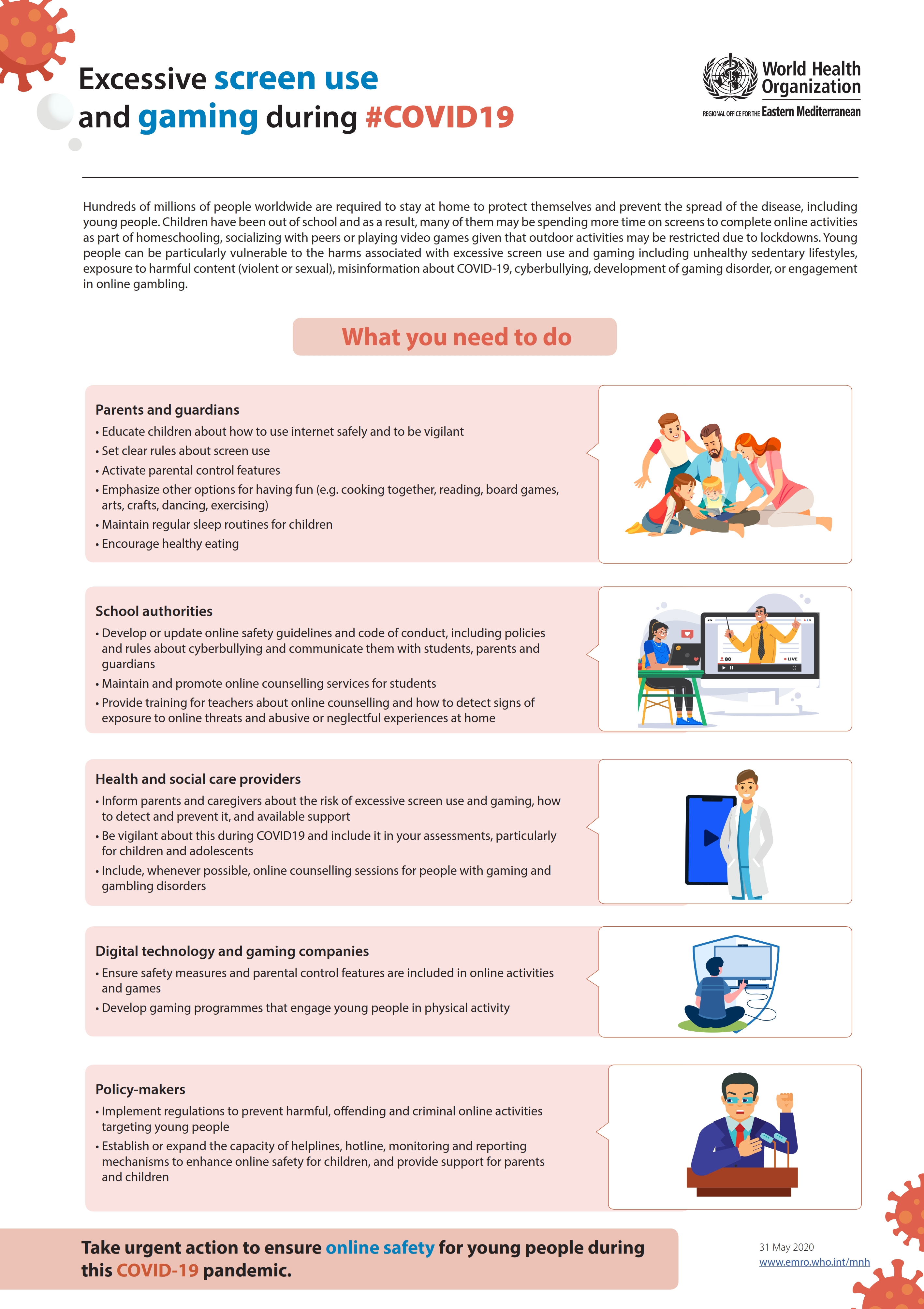
Excessive screen use and gaming during #COVID19: what you need to do (infographic)
Publication date: 2020
Hundreds of millions of people worldwide are required to stay at home to protect themselves and prevent the spread of the disease, including young people. Young people can be particularly vulnerable to the harms associated with excessive screen time or gaming including unhealthy sedentary lifestyles, exposure to harmful content (violent or sexual), misinformation about COVID-19, cyberbullying, development of gaming disorder, or engagement in online gambling. This infographic provides important information on what different target groups need to do in regard to excessive screen use and gaming during the COVID-19 pandemic. It also stresses the importance of these target groups taking urgent action to ensure online safety for young people during this pandemic.
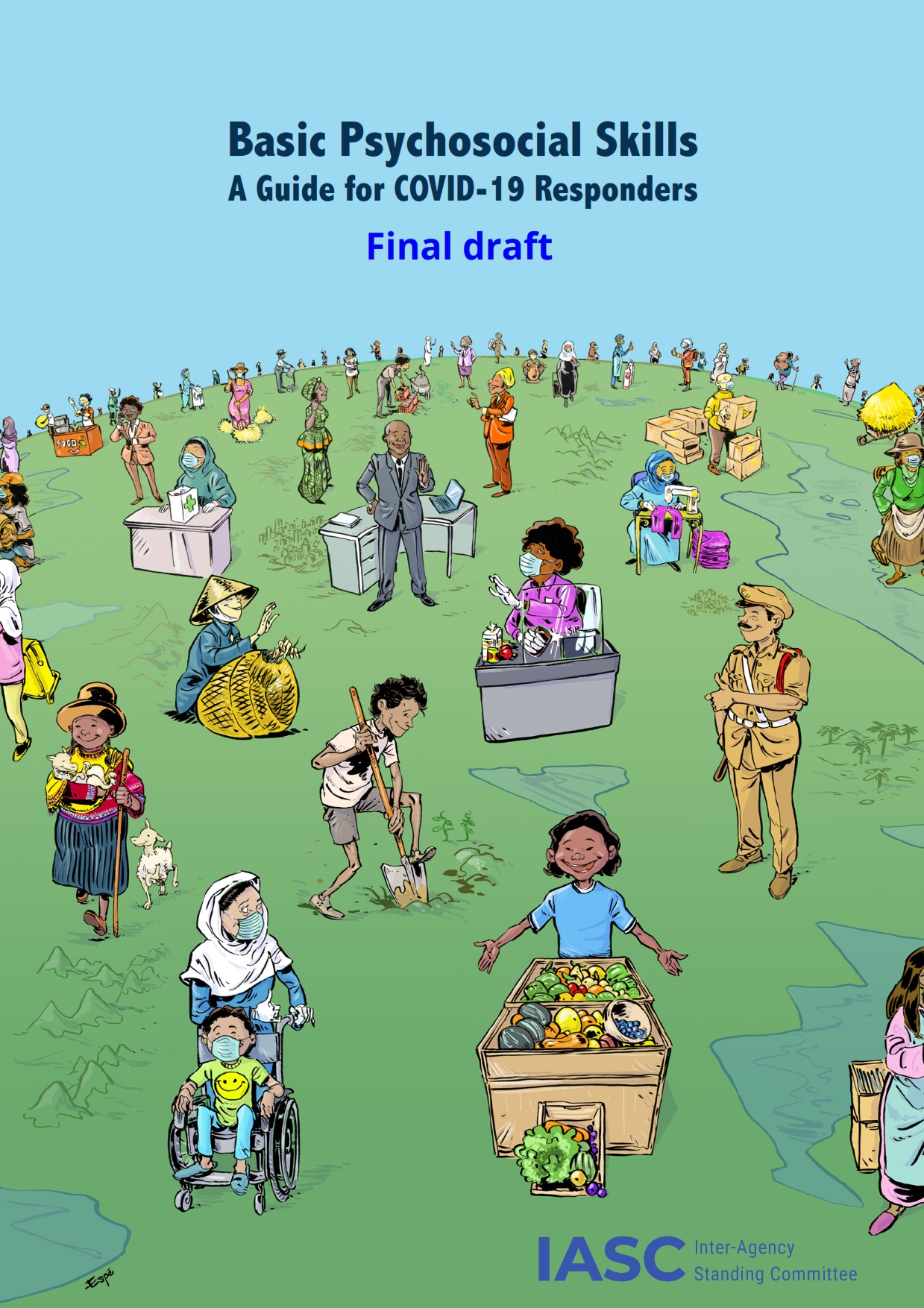
Basic psychosocial skills: a guide for COVID-19 responders
Publication date: 2020
Basic psychosocial support skills are at the core of any mental health and psychosocial support intervention. Such skills are also indispensable for many other relief providers involved in the COVID-19 response, whether they identify as a mental health and psychosocial support provider or not. This illustrated guide, developed by the IASC Mental Health and Psychosocial Support Reference Group, aims at building basic psychosocial skills among all essential workers responding to COVID-19 in all sectors. The document is the result of consultations, weekly calls among 57 member organizations, and around 200 COVID-19 survivors and COVID-19 emergency responders in 24 countries.
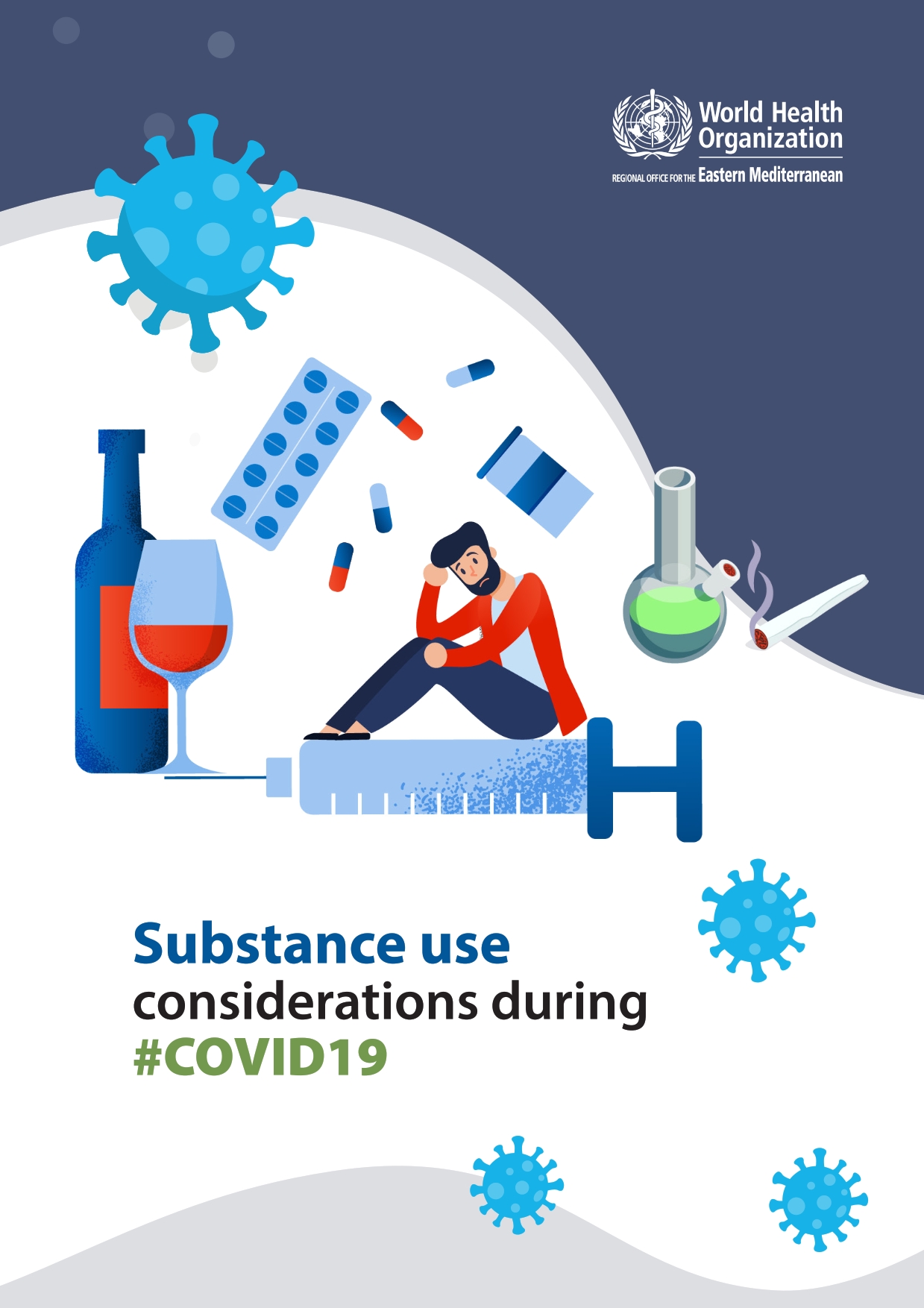
Substance use considerations during #COVID19
Publication date: 2020
Data show that 271 million people worldwide aged 15‒64 used an illegal drug once in the past year, while 35 million were suffering from substance use disorders. Substances include alcohol, cannabis, opioids, stimulants, and nicotine. Reports show that the misuse of prescription drugs and benzodiazepines are on the rise in some population groups in the Region. Under no circumstances should people use any type of substances as a means of preventing or treating #COVID19 infection. Substance use will not protect from #COVID19. This document provides important information on what different target groups should do to curb the problem of substance use during the COVID-19 pandemic.
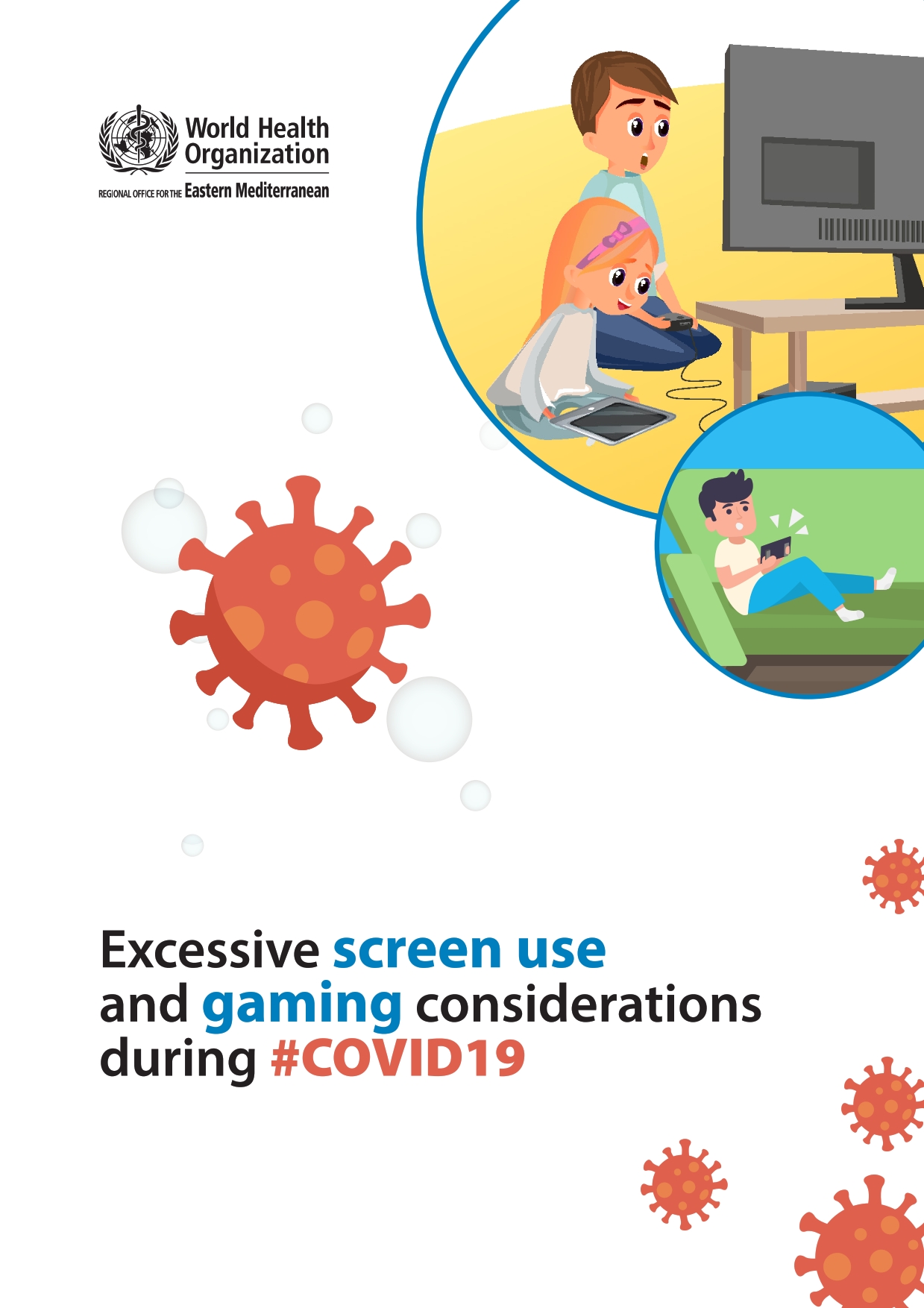
Excessive screen use and gaming considerations during #COVID19
Publication date: 2020
As of 25 April 2020, around 1.5 billion children have been out of school and many of them may be spending more time on screens to complete online activities as part of homeschooling, socializing with peers or playing video games due to lockdowns. Young people can be particularly vulnerable to the harms associated with excessive screen time or gaming including unhealthy sedentary lifestyles, exposure to harmful content (violent or sexual), misinformation about COVID-19, cyberbullying, development of gaming disorder, or engagement in online gambling. This document focuses on the urgent action needed from different target groups to ensure online safety for young people during the COVID-19 pandemic.
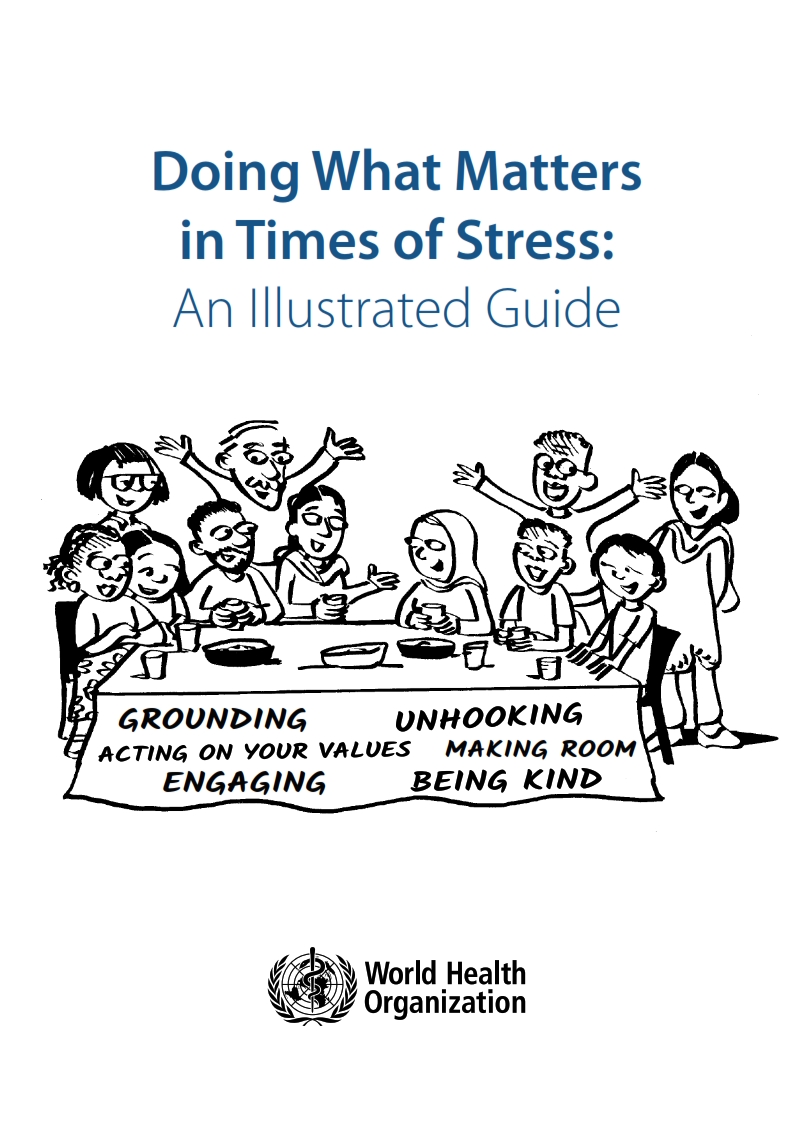
Doing what matters in times of stress: an illustrated guide
Publication date: 2020
This document is a stress management guide for coping with adversity. The guide aims to equip people with practical skills to help cope with stress. A few minutes each day are enough to practice the self-help techniques. The guide can be used alone or with the accompanying audio exercises. Informed by evidence and extensive field testing, the guide is for anyone who experiences stress, wherever they live and whatever their circumstances.
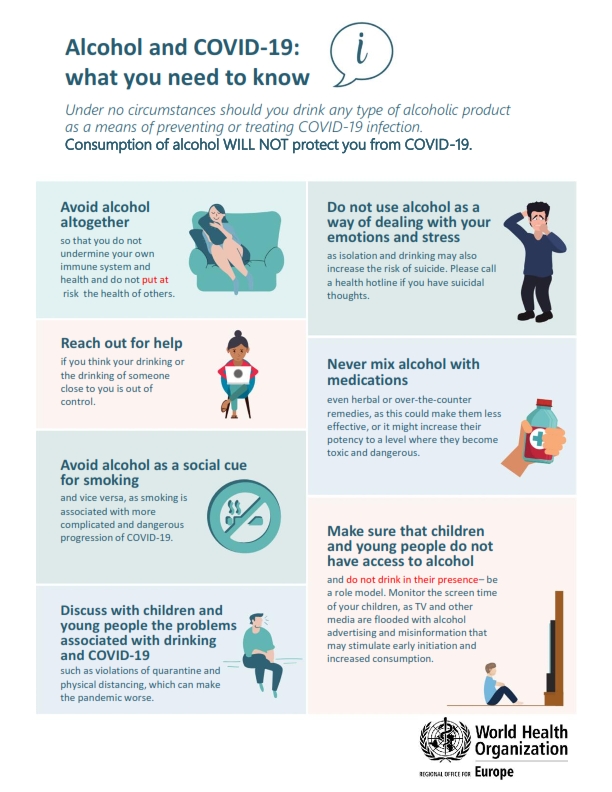
Alcohol and COVID-19: what you need to know (infographic)
Publication date: 2020
Under no circumstances should you drink any type of alcoholic product as a means of preventing or treating COVID-19 infection. Consumption of alcohol WILL NOT protect you from COVID-19. This infographic provides important information on what to do and what not to do in regard to alcohol during the COVID-19 pandemic, including: avoiding alcohol altogether, reaching out for help, avoiding alcohol as a social cue for smoking, discussing with children and young people the problems associated with drinking and COVID-19, not using alcohol as a way of dealing with your emotions and stress, never mixing alcohol with medications, and making sure that children and young people do not have access to alcohol.
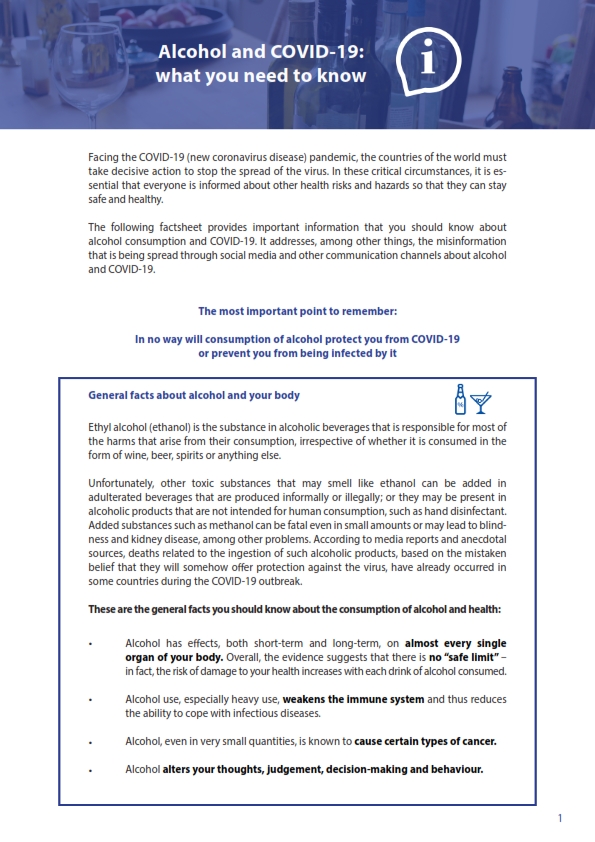
Alcohol and COVID-19: what you need to know (summary)
Publication date: 2020
Under no circumstances should you drink any type of alcoholic product as a means of preventing or treating COVID-19 infection. Consumption of alcohol will not protect you from COVID-19. Alcohol use, especially heavy use, weakens the immune system and reduces its ability to cope with infectious diseases, including COVID-19. This two-pager summarizes the content provided in the full (six-page) factsheet that follows. It addresses general myths about COVID-19 and provides important information on what to do and what not to do in regard to alcohol during the COVID-19 pandemic.

Alcohol and COVID-19: what you need to know (full factsheet)
Publication date: 2020
Facing the COVID-19 pandemic, the countries of the world must take decisive action – ranging from testing, physical distancing, quarantining and strict community lockdowns – to slow down and stop the spread of the virus. In these critical circumstances, it is essential that everyone is informed about other health risks and hazards so that they can stay safe and healthy. This factsheet provides important information that you should know about alcohol consumption and COVID-19. It addresses, among other things, the misinformation that is being spread through social media and other communication channels about alcohol and COVID-19. A two-page summary of this factsheet can be found above.
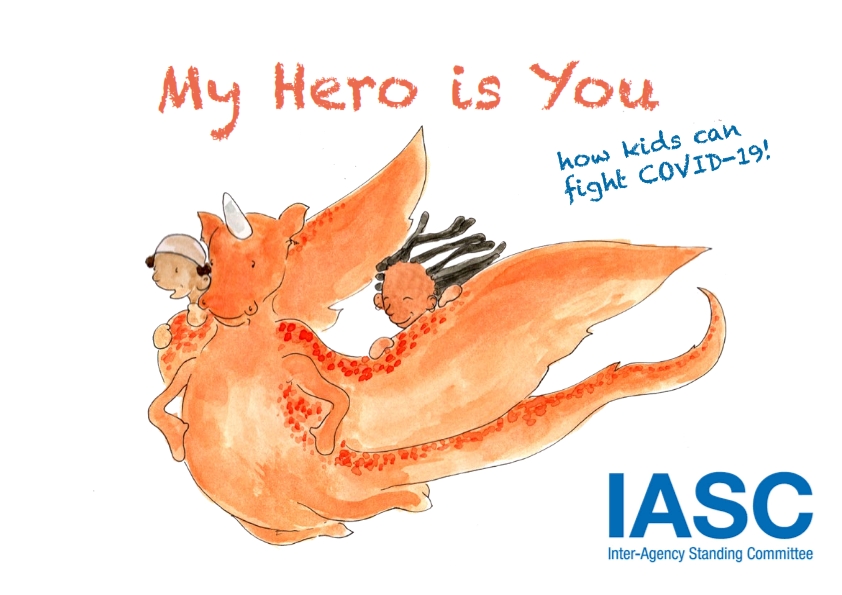
My hero is you, storybook for children on COVID-19
Publication date: 2020
This book was a project developed by the Inter-Agency Standing Committee Reference Group on Mental Health and Psychosocial Support in Emergency Settings (IASC MHPSS RG). The project was supported by global, regional and country based experts from Member Agencies of the IASC MHPSS RG, in addition to parents, caregivers, teachers and children in 104 countries. A global survey was distributed in Arabic, English, Italian, French and Spanish to assess children’s mental health and psychosocial needs during the COVID-19 outbreak.
COVID 19: 24/7 parenting
Publication date: 2020
This page provides open-access online parenting resources during COVID-19 on one-on-one time, keeping it positive, structure up, bad behaviour, keep calm and manage stress, and talking about COVID-19. These resources, available in 30+ languages, were developed by Parenting for Lifelong Health, who are working with WHO, UNICEF, the Global Partnership to End Violence Against Children, the Internet of Good Things, USAID and Centers for Disease Control and Prevention.
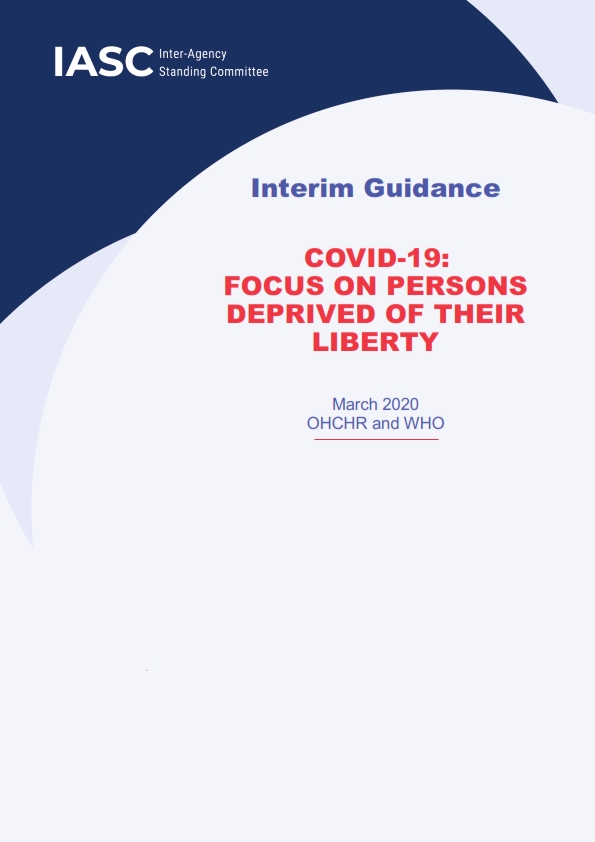
COVID-19: focus on persons deprived of their liberty
Publication date: 2020
This interim guidance, published by the Inter-Agency Standing Committee (IASC) provides a series of messages that aim at assisting OHCHR and UNCT/HCT in addressing the specific issues of persons deprived of their liberty with the responsible services (agencies in charge of migration and rehabilitation centres) and ministries (justice, interior, health, etc). Persons deprived of their liberty in prisons, administrative detention centres, migration detention centres and drug rehabilitation centres, require a specific focus as they might face higher vulnerabilities as the spread of COVI-19 can expand rapidly due to the usually high concentration in confined spaces and to the restricted access to hygiene and health care in some contexts.
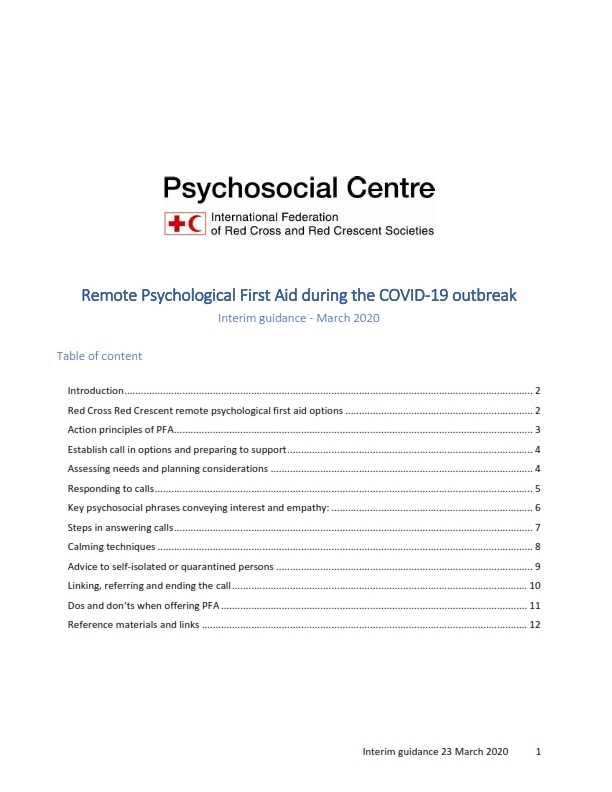
Remote psychological first aid during the COVID-19 outbreak
Publication date: 2020
Psychological first aid is a method of helping people in distress so they feel calm and supported to cope better with their challenges. It is a way of assisting someone to manage their situation and make informed decisions. It involves paying attention to reactions, active listening and, if needed, practical assistance, such as problem solving, help to access basic needs or referring to further options for assistance. These interim guidelines can be used by Red Cross Red Crescent National Societies to set up and run different kind of remote services for the public during the time of a COVID-19 response, noting that the target group for the guidelines are adults.
Social stigma associated with COVID-19
Publication date: 2020
The current COVID-19 outbreak has provoked social stigma and discriminatory behaviours against people of certain ethnic backgrounds as well as anyone perceived to have been in contact with the virus. In an outbreak, this may mean people are labelled, stereotyped, discriminated against, treated separately, and/or experience loss of status because of a perceived link with a disease. This document is a guide to preventing and addressing social stigma, targeting these audience groups: Government, media and local organizations working on the new coronavirus disease (COVID-19).
Coping with stress during the 2019-nCoV outbreak
Publication date: 2020
This flyer gives the general public some quick tips on coping with stress during the COVID-19 situation. It walks you through what to do when you are feeling sad, stressed, confused, scared or angry, such as encouraging you, among other things, to talk to people you trust, such as your friends and family, and maintain a healthy lifestyle, including, a proper diet, sleep and exercise.
Helping children cope with stress during 2019-nCoV outbreak
Publication date: 2020
This flyer gives the general public some quick tips on helping children with stress during the COVID-19 situation. Children may respond to stress in different ways such as being more clingy, anxious, withdrawing, angry or agitated, bedwetting, etc. Parents should respond to their children’s reactions in a supportive way, listen to their concerns and give them extra love and attention.
Mental health and psychosocial considerations during COVID-19 outbreak
Publication date: 2020
In March 2020, WHO made the assessment that COVID-19 can be characterized as a pandemic. WHO and public health authorities around the world are acting to contain the COVID-19 outbreak. However, this time of crisis is generating stress in the population. These mental health considerations were developed by the WHO’s Department of Mental Health and Substance Use as messages targeting different groups to support for mental and psychosocial well-being during COVID-19 outbreak.
Interim briefing note on addressing mental health and psychosocial aspects of COVID-19 outbreak
Publication date: 2020
This interim briefing note was developed by the Inter Agency Standing Committee (IASC) Reference Group for Mental Health and Psychosocial Support in Emergency Settings and summarizes key mental health and psychosocial support (MHPSS) considerations in relation to the 2019 novel coronavirus (COVID-19) outbreak. The Reference Group consists of more than 30 members, and fosters a unique collaboration between NGOs, UN and international agencies and academics, promoting best practices in MHPSS.








